The government’s decision to end rough sleeping during the coronavirus pandemic could be made permanent with the right financial commitment and strategy, a cross-party parliamentary committee has said.
MPs on the housing and communities committee said it was “feasible” for the current situation to become “the new norm” if the government took the right action, with the progress made during the pandemic a “golden opportunity”.
90 per cent of rough sleepers have been given accommodation during the ongoing Covid-19 pandemic, with many put up in hotels and temporary accommodation.
Download the new Independent Premium app
Sharing the full story, not just the headlines
The committee’s report says the government needs to spend £100m per year – a relatively modest sum in budget terms – on long-term housing support to make the change a reality.
It also says the government should improve its support to councils for people with “no recourse to public funds” – currently a consequence of their immigration status – “or hundreds will return to the streets with potentially disastrous consequences”.
The MPs, from all the major parties, say there are “humanitarian grounds” for such a change.
Their report also recommends that councils need to be given “targeted grant funding” to acquire temporary accommodation so that “rough sleepers do not end up back on the street due to lack of suitable housing”.
But they also warn that the situation will deteriorate rapidly as renters struggle to pay back arrears accrued during the pandemic if the government does not act.
The report says the government’s current approach to dealing with renters “will be toothless and will fail to prevent a cliff edge of evictions once the moratorium on possession cases ends”.
Rough sleeping has risen sharply since 2010 to a record high, after sustained falls during the last Labour government.
Clive Betts, chair of the committee said: “We must praise the efforts of all those who have done so much to help take people of the streets during the current health emergency, but what happens next is crucial. It is simply not good enough for anyone to leave temporary accommodation and end up back on the streets. This isn’t just about protecting vulnerable people from Covid-19. It is not safe to live on the streets in any circumstances and it is not acceptable to allow it to return once the health crisis abates.
The latest news on Brexit, politics and beyond direct to your inbox
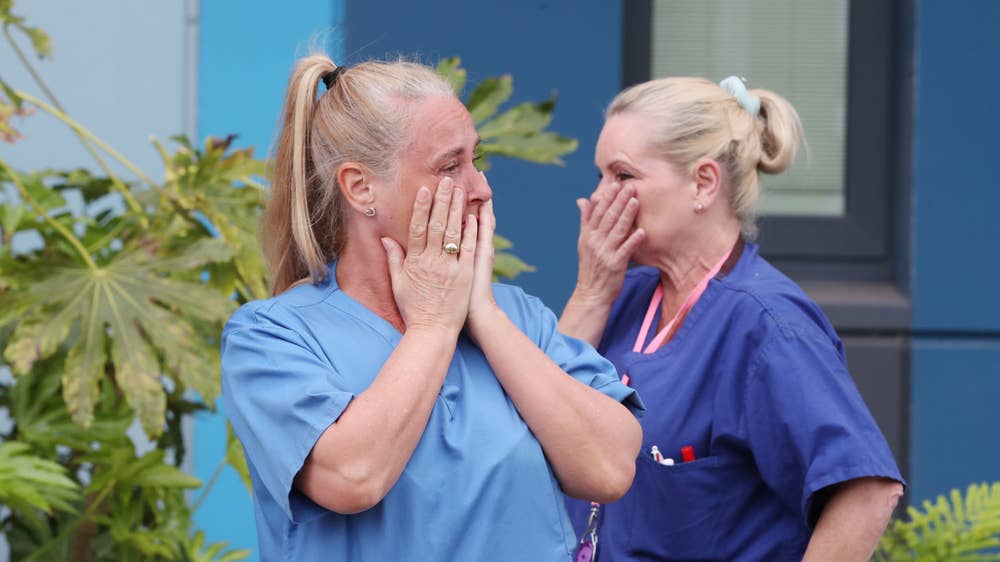
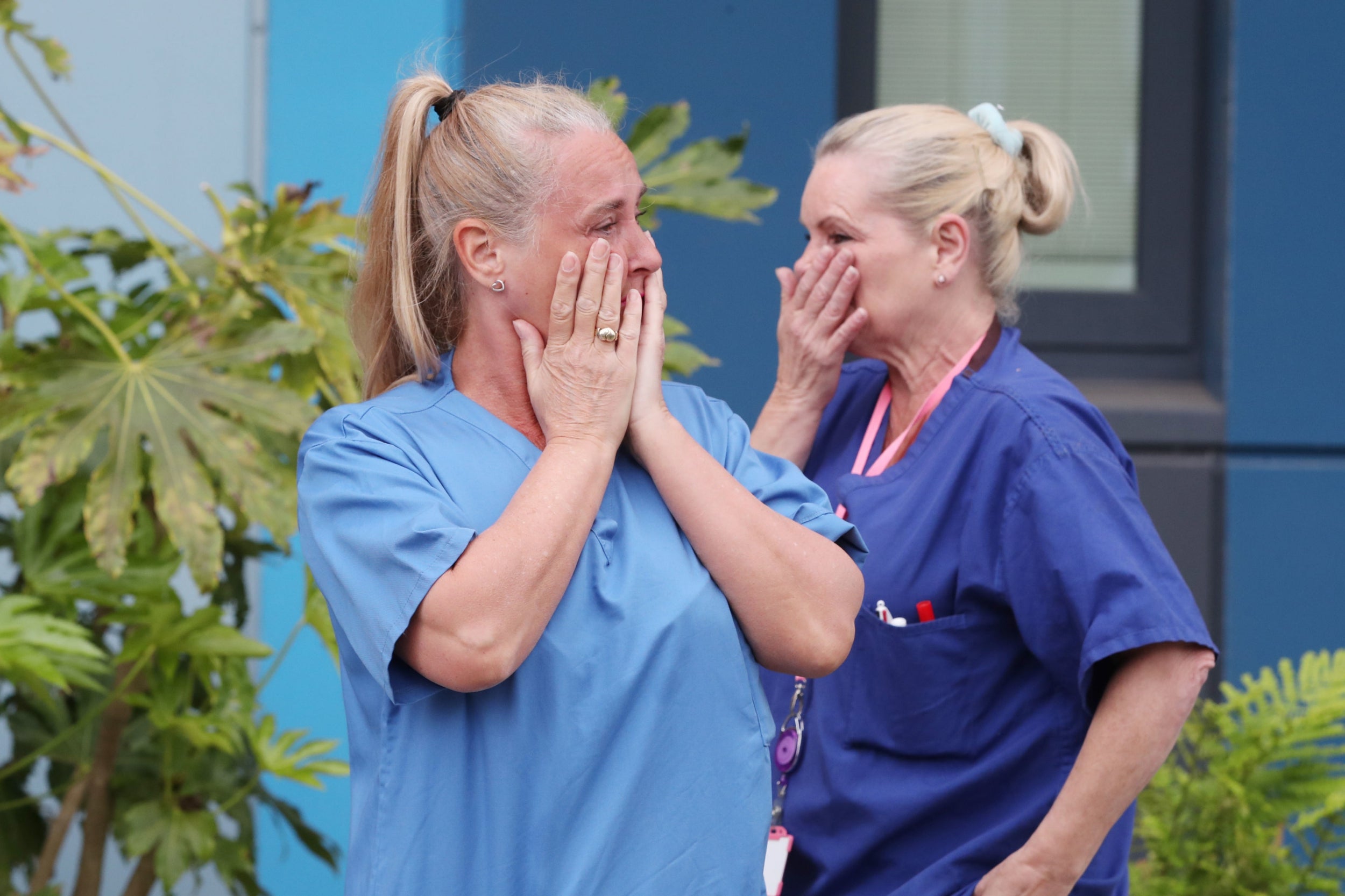
1/30
Staff react outside Salford Royal Hospital in Manchester during a minute’s silence to pay tribute to the NHS staff and key workers who have died during the coronavirus outbreak
PA
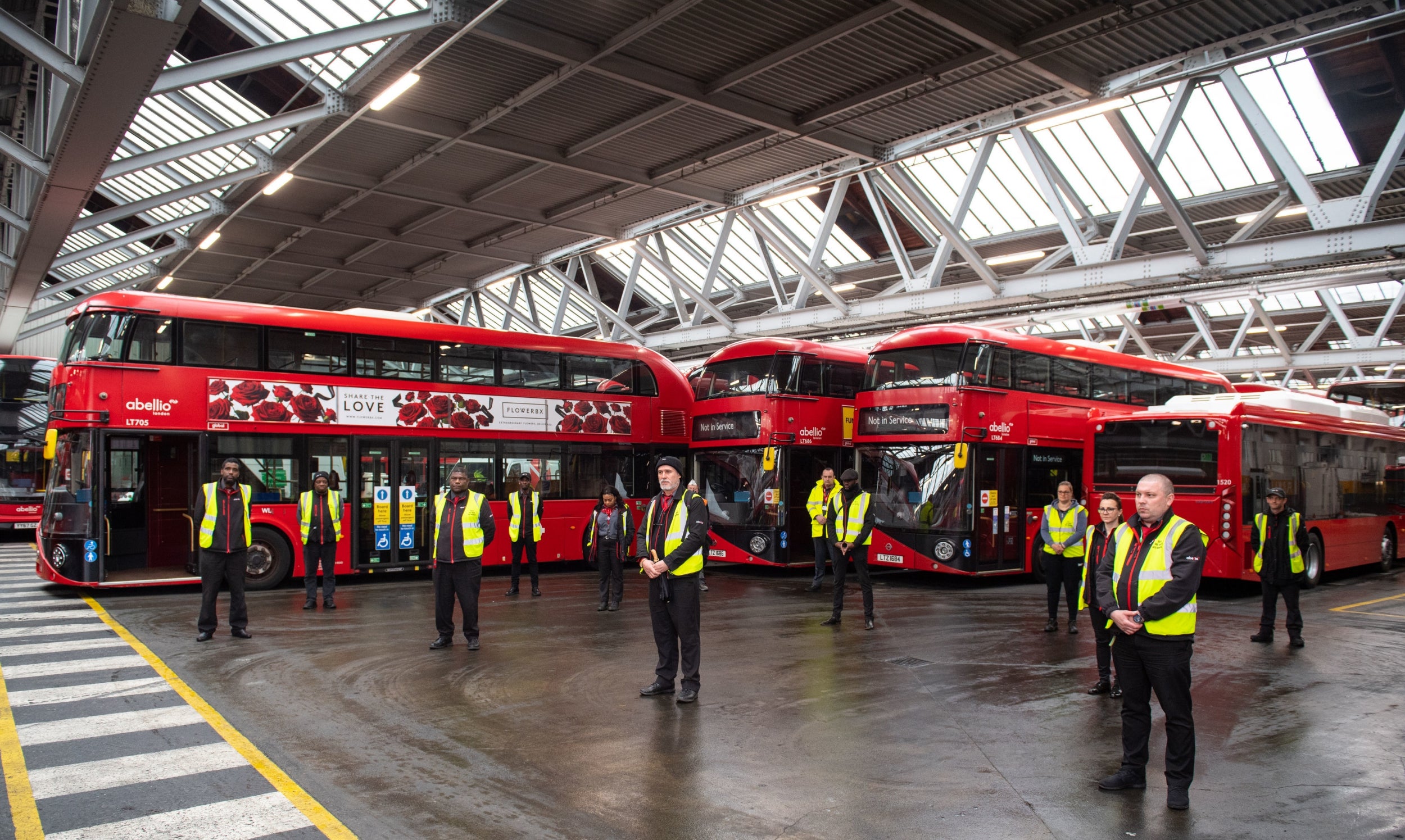
2/30
Staff inside Camberwell bus depot in London, during a minute’s silence
PA
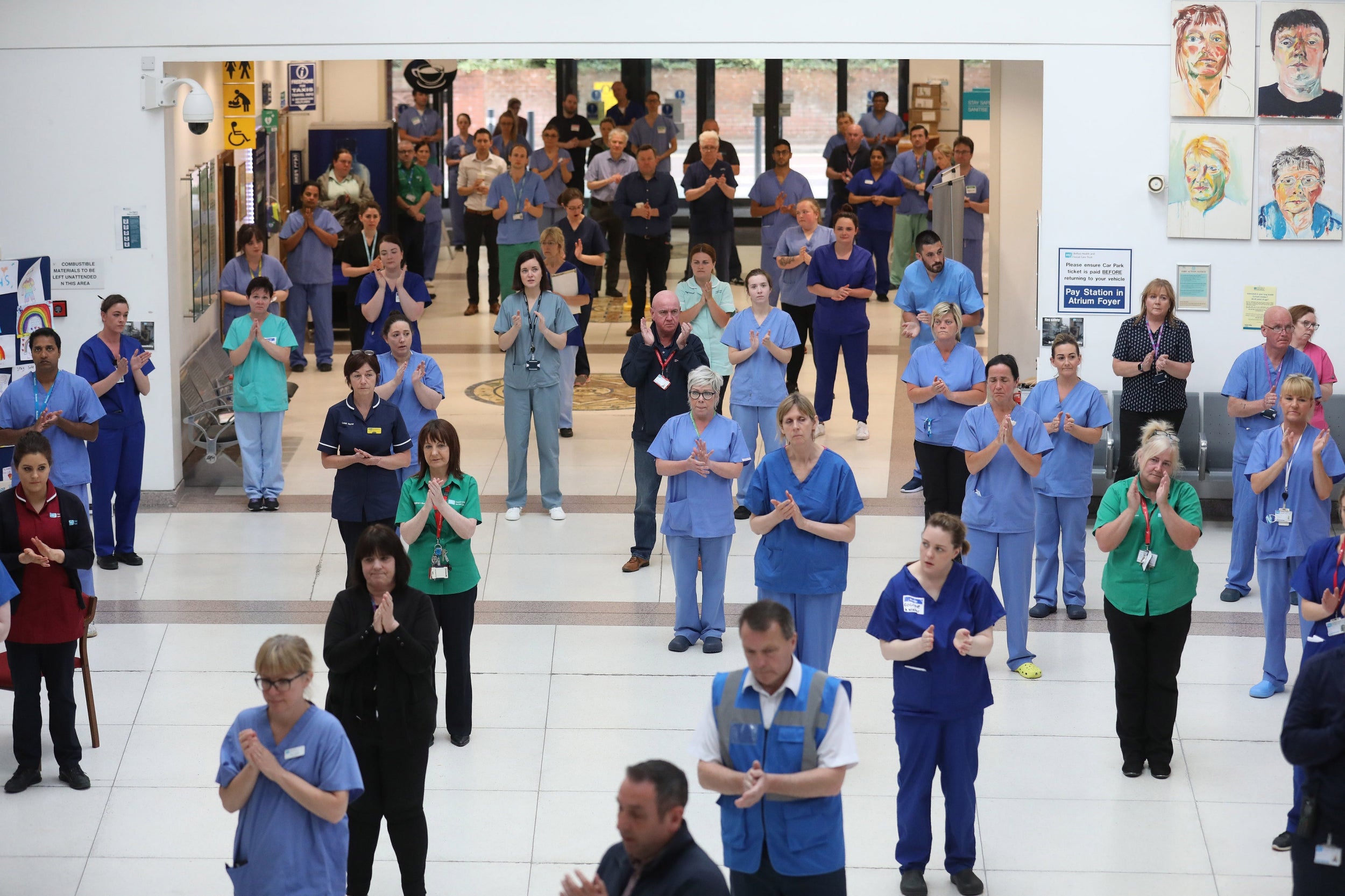
3/30
NHS staff at the Mater hospital in Belfast, during a minute’s silence to pay tribute to the NHS staff and key workers who have died during the coronavirus outbreak.
PA
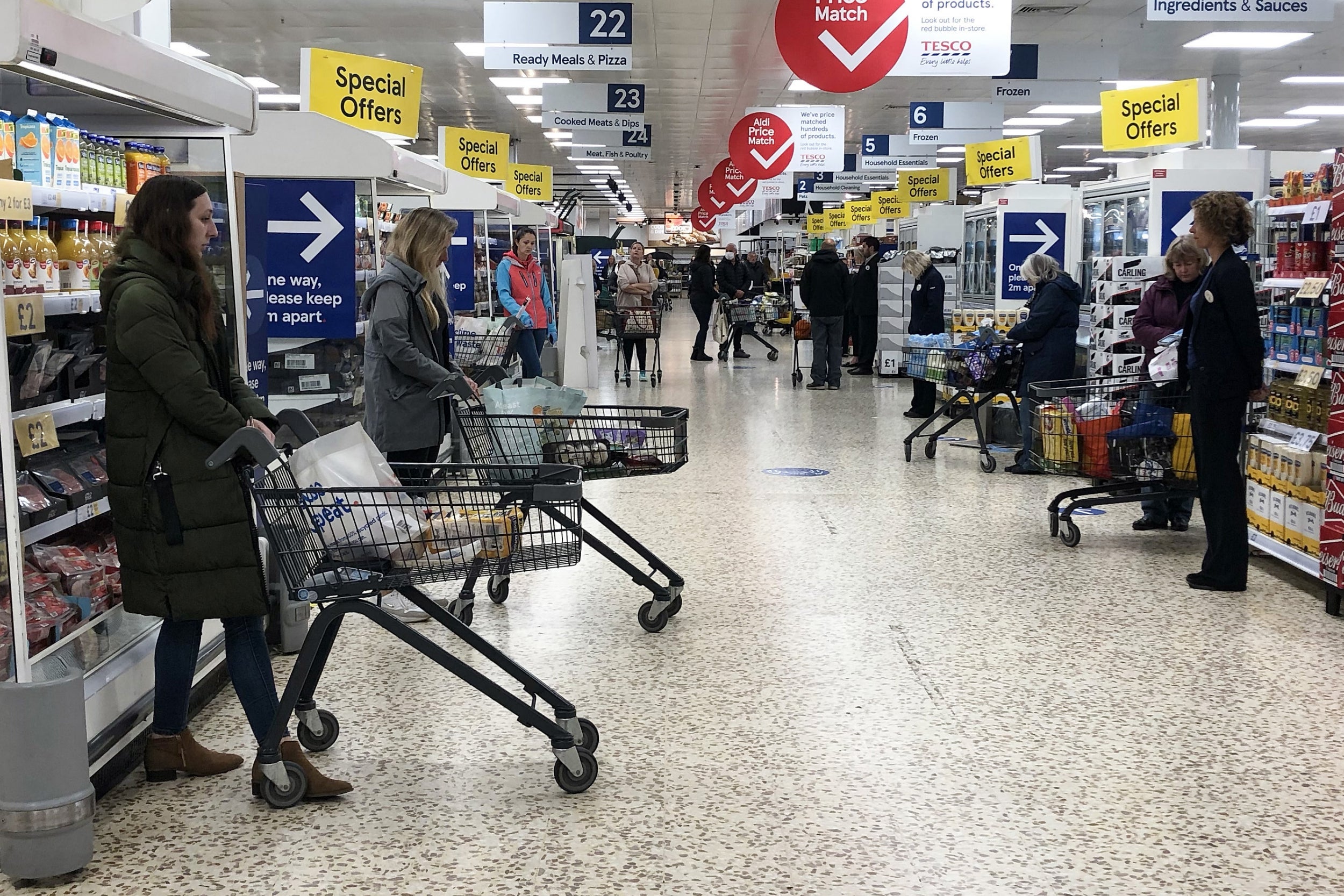
4/30
Shoppers observe a minute’s silence in Tescos in Shoreham
Getty
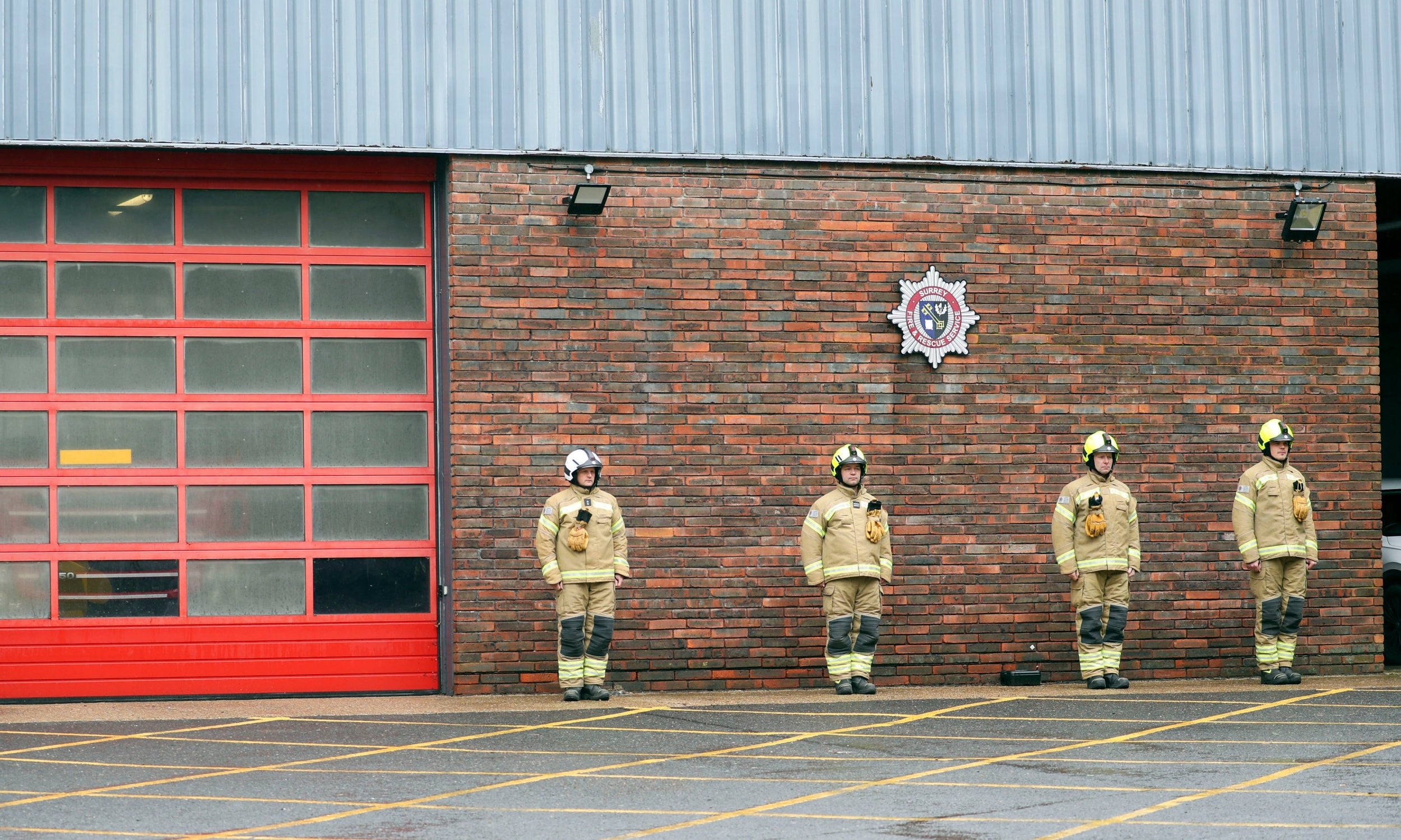
5/30
Firefighters outside Godstone fire station
PA
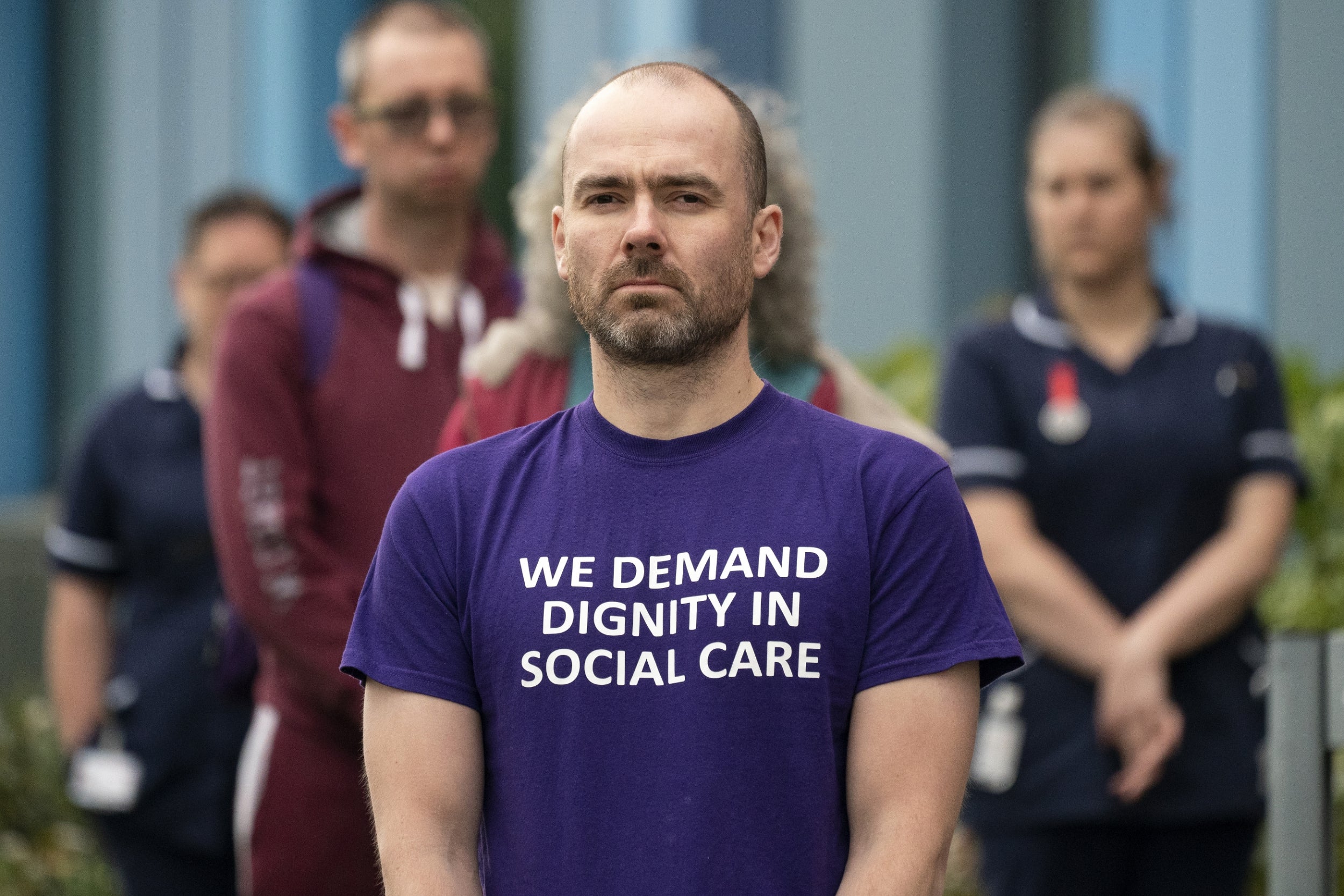
6/30 Salford Royal Hospital
Getty
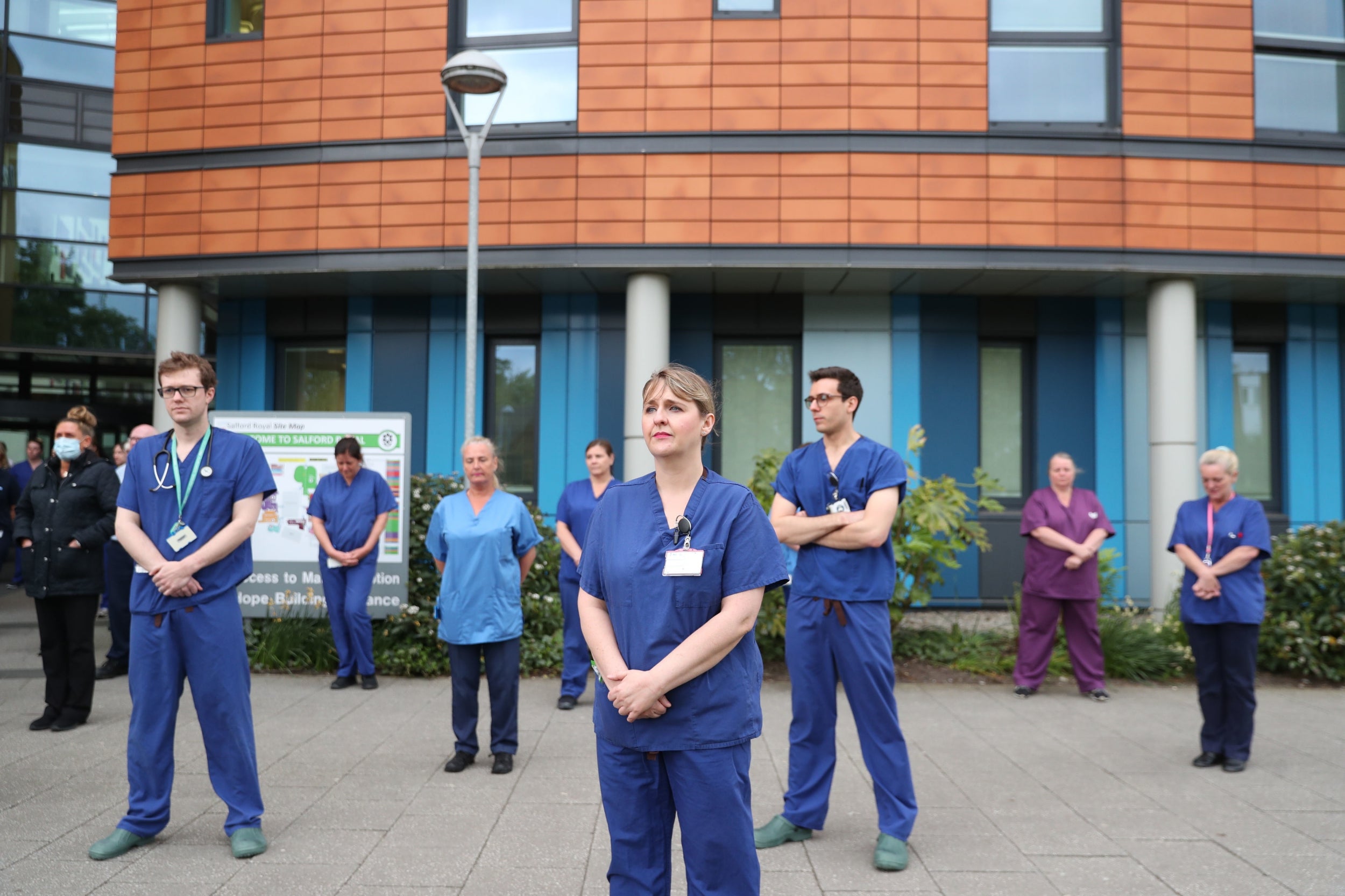
7/30 Salford Royal Hospital
PA
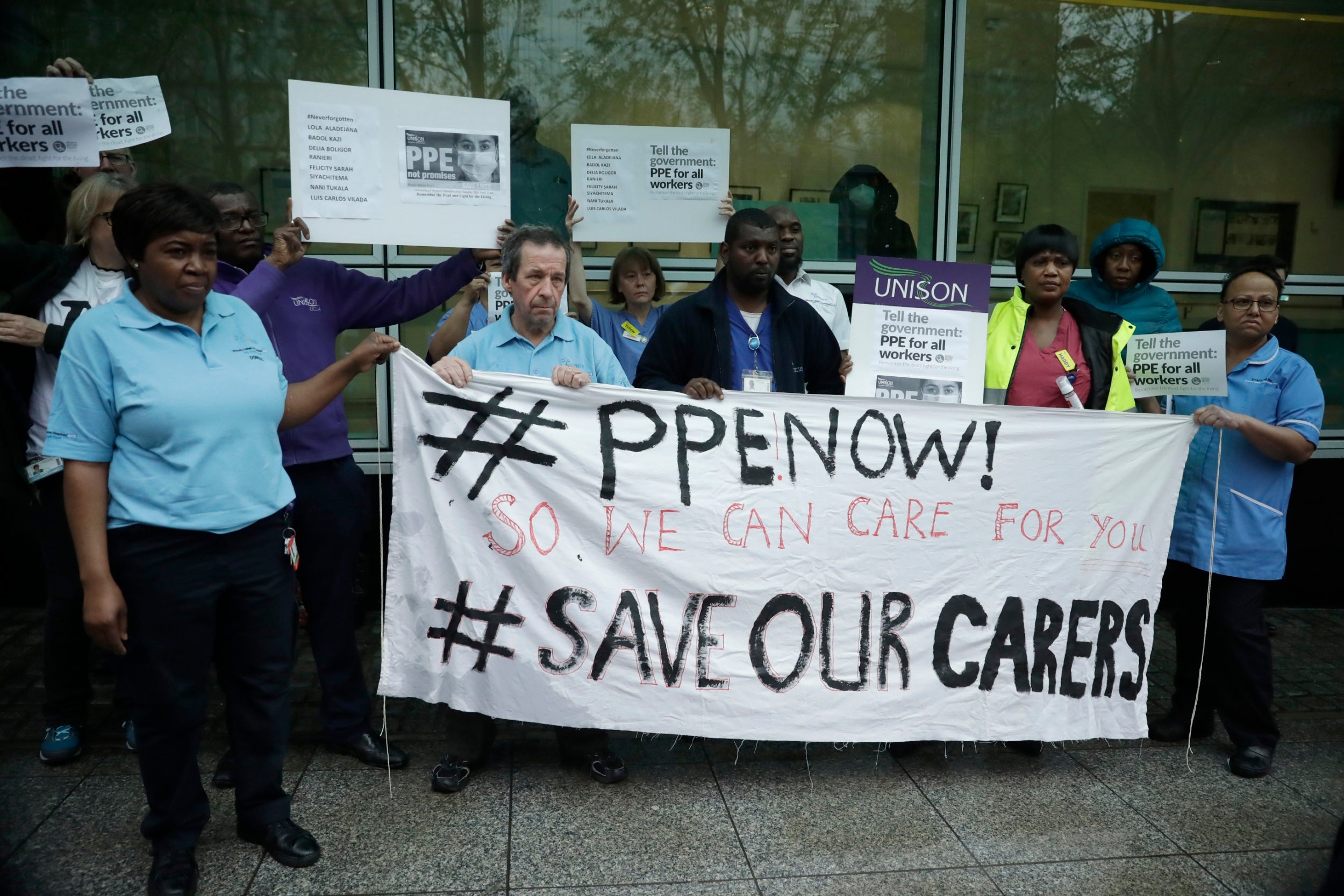
8/30
Hospital workers take part in a protest calling on the British government to provide PPE across Britain for all workers in care, the NHS and other vital public services after a nationwide minute’s silence at University College Hospital in London
AP
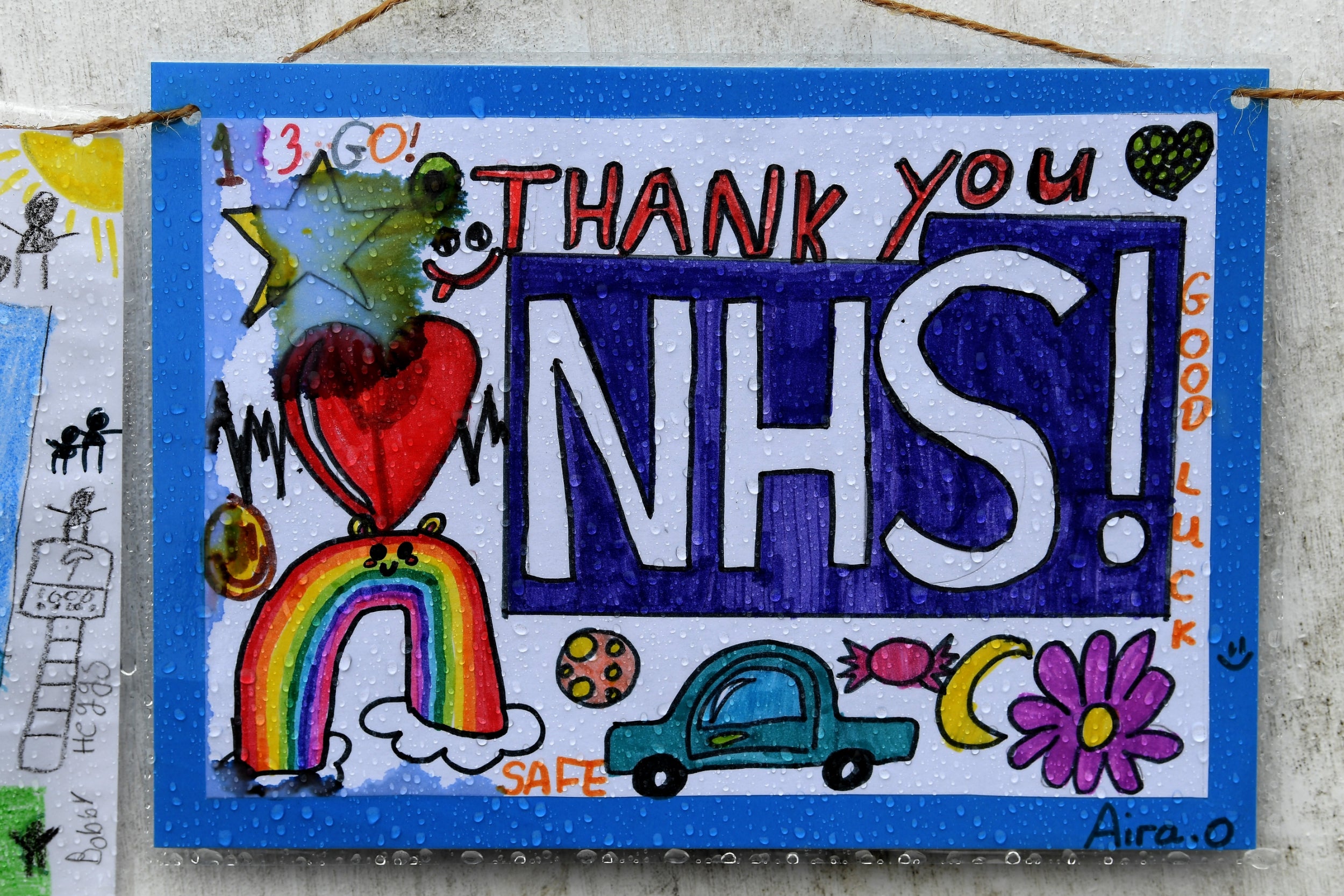
9/30
A school children’s poster hanging outside Glenfield Hospital during a minute’s silence
Getty
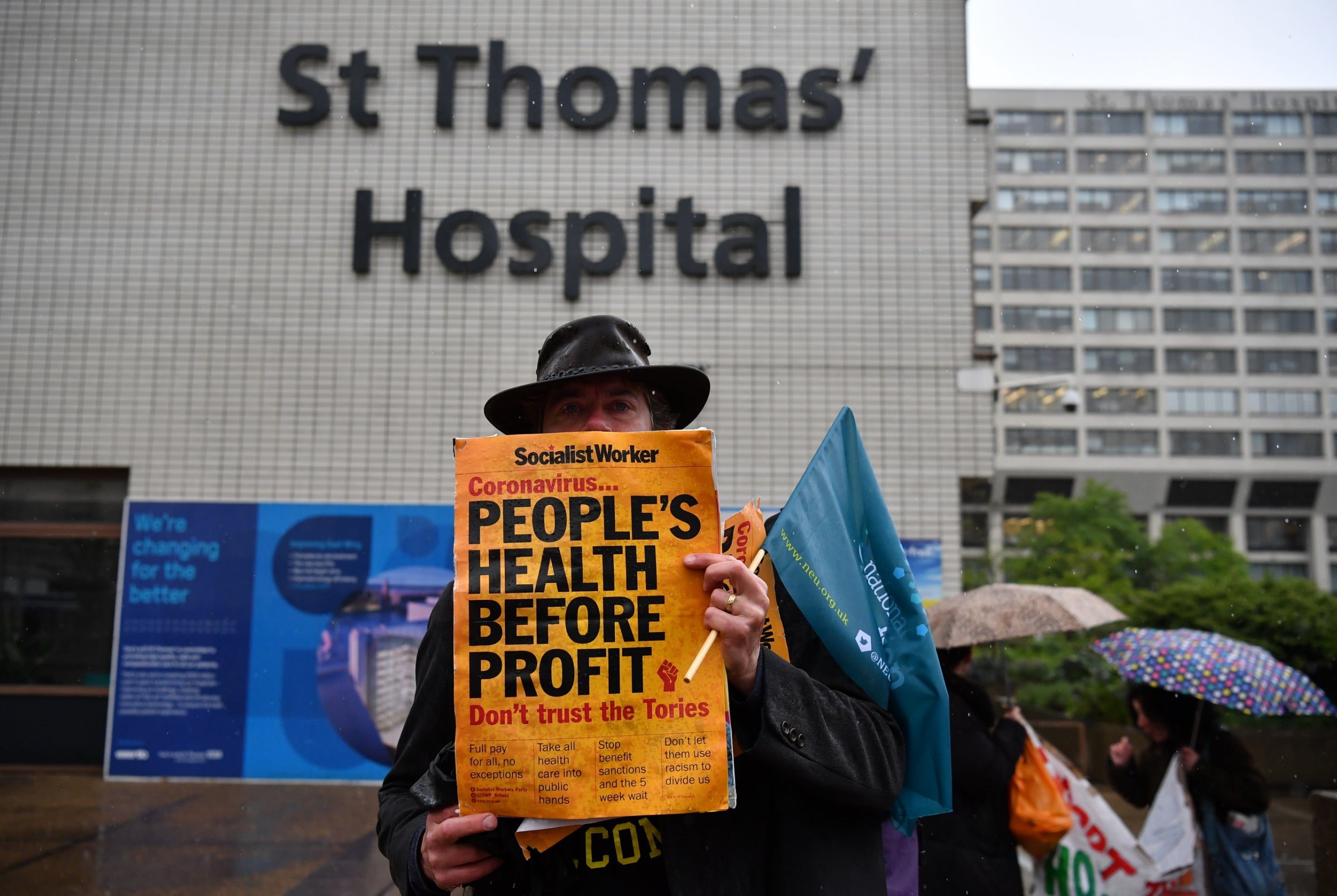
10/30
A man holds a placard that reads “People’s health before profit” outside St Thomas hospital
Getty
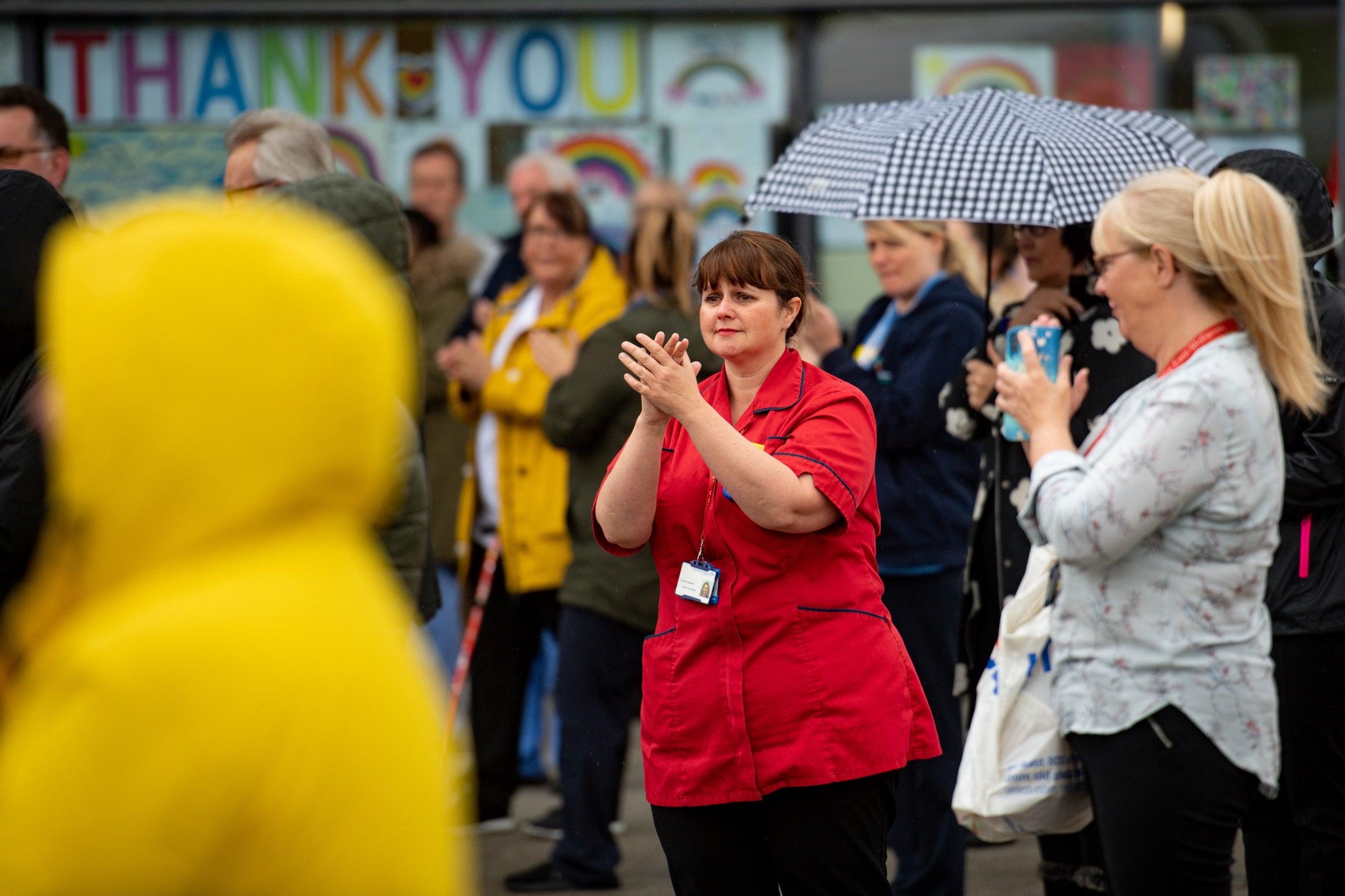
11/30
Staff members applaud outside the Royal Derby Hospital, following a minute’s silence
PA
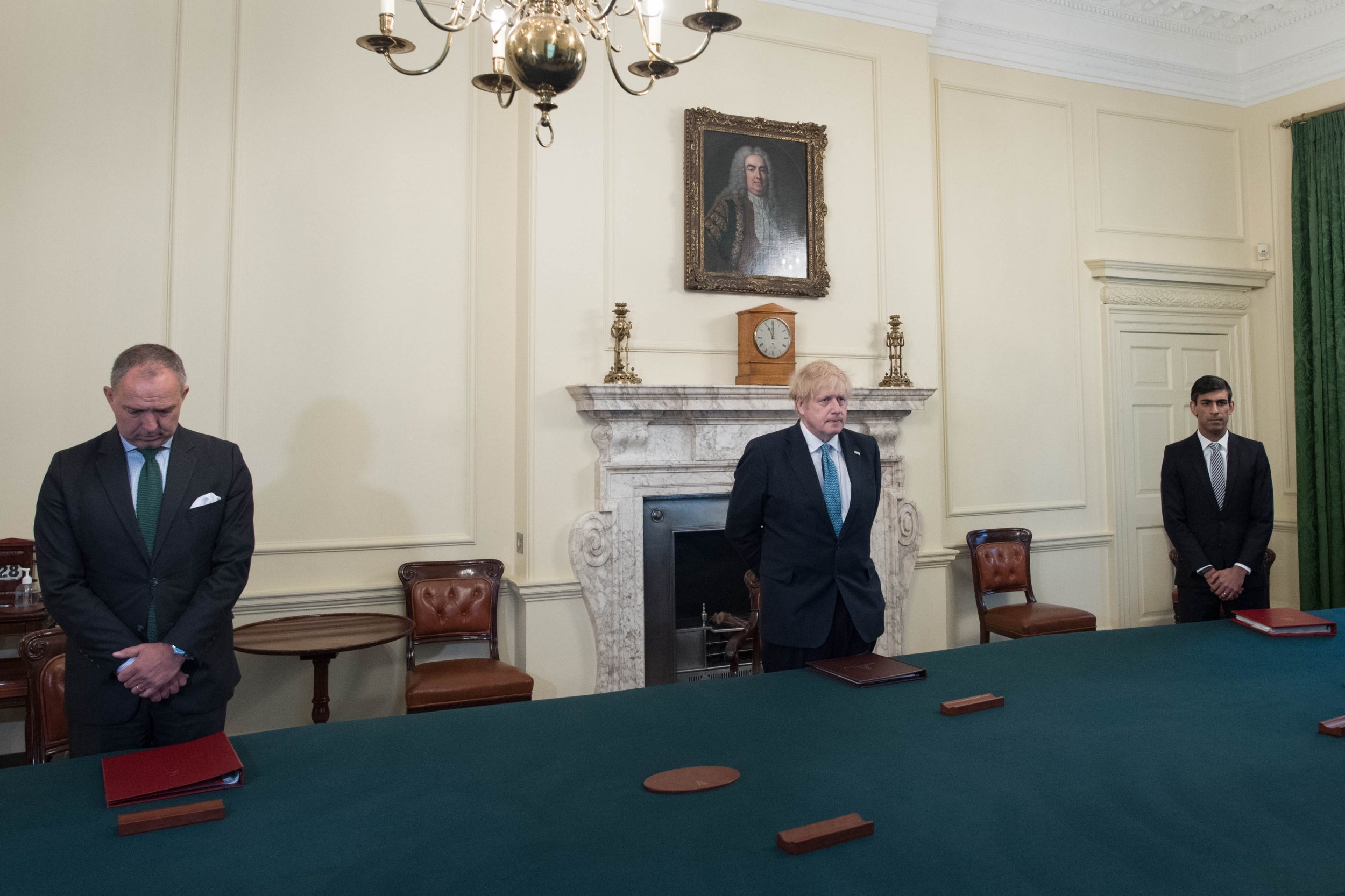
12/30
Cabinet Secretary Mark Sedwill, Prime minister Boris Johnson and Chancellor of the Exchequer Rishi Sunak, stand inside 10 Downing Street, London, to observe a minutes silence in tribute to the NHS staff and key workers who have died during the coronavirus outbreak
PA
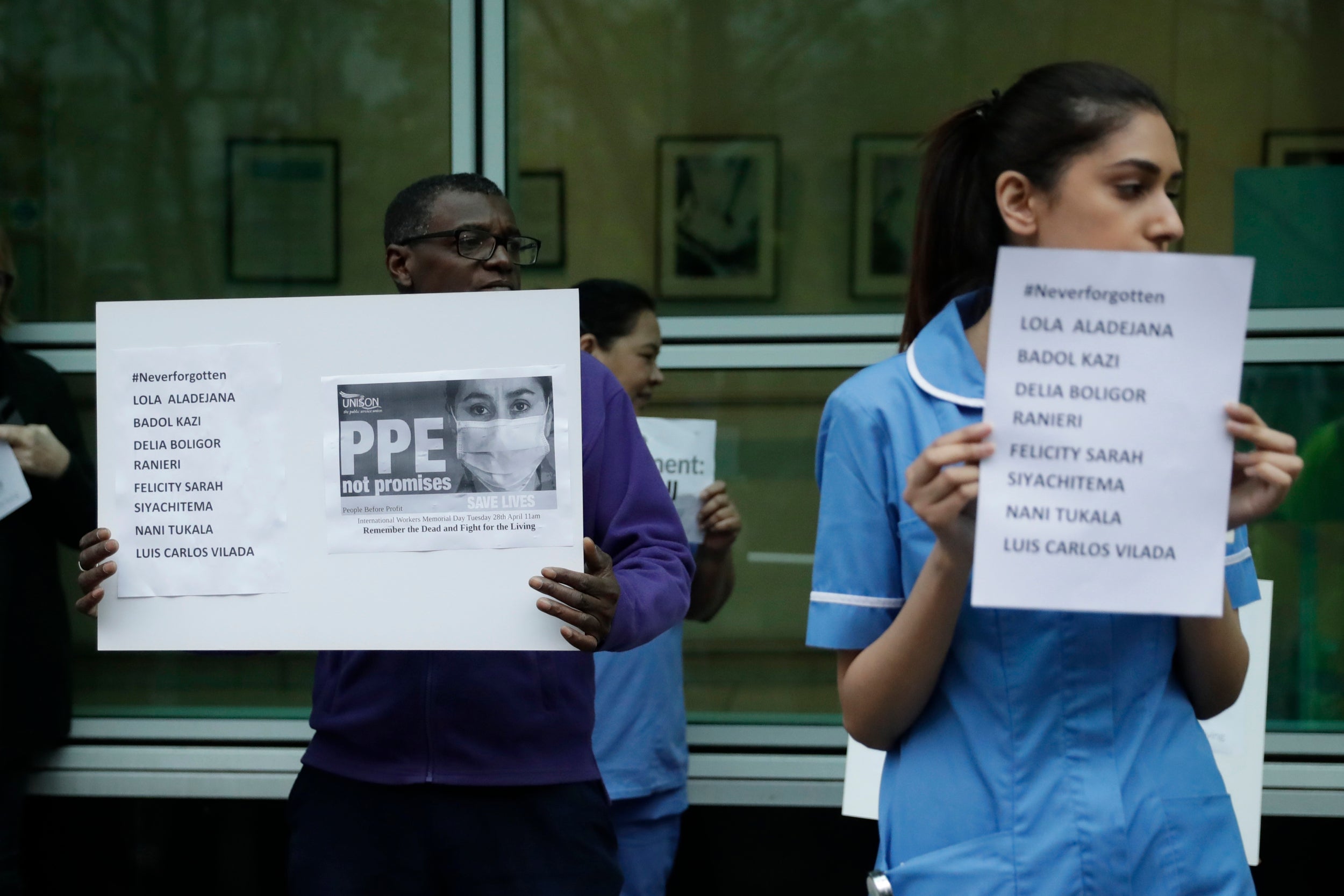
13/30 University College Hospital, London
Hospital workers hold placards with the names of their colleagues who have died from coronavirus as they take part in a protest calling on the British government to provide PPE
AP
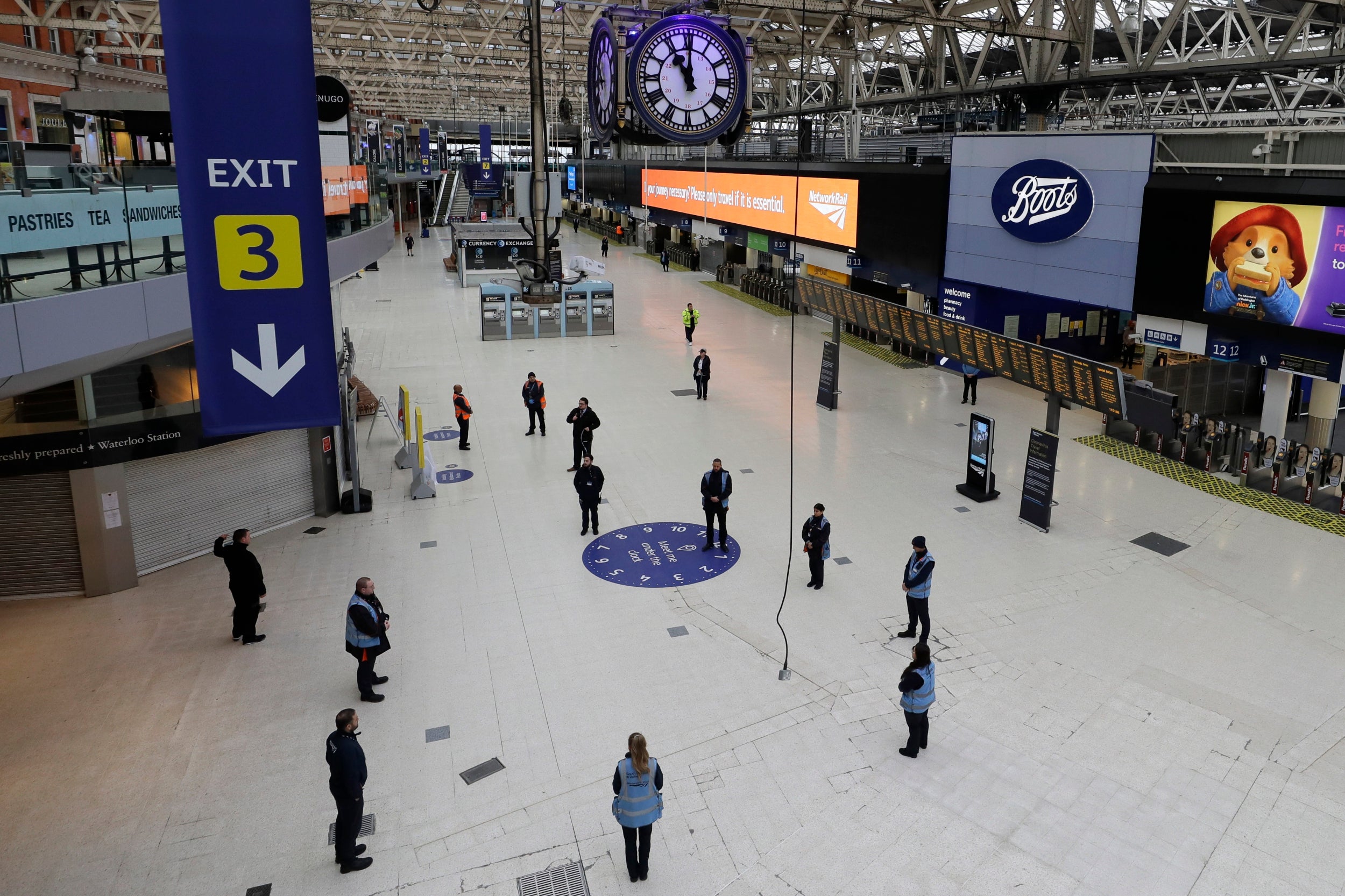
14/30
Staff at Waterloo Station in London, stand to observe a minute’s silence, to pay tribute to NHS and key workers who have died with coronavirus
AP
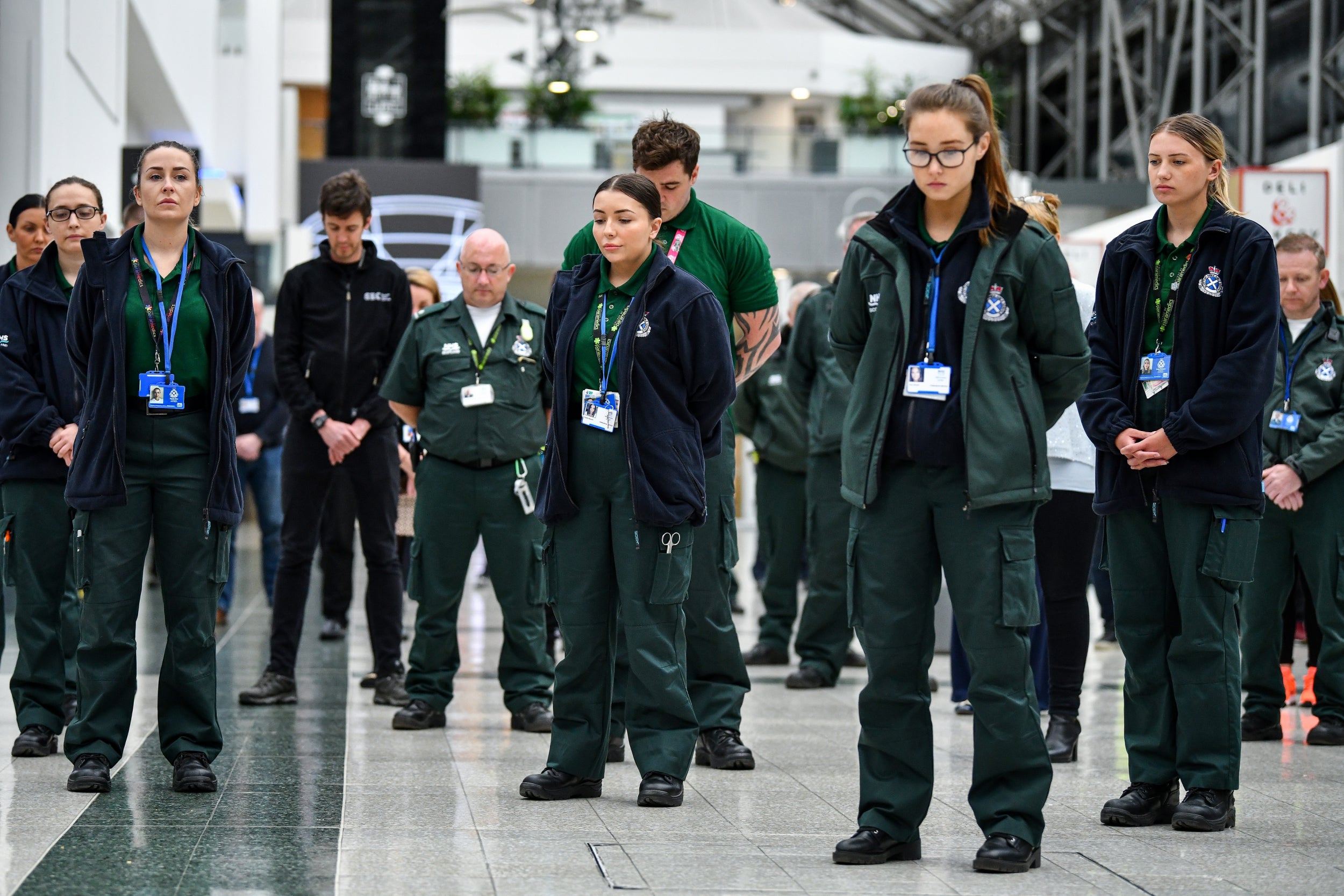
15/30
Medical staff at the Louisa Jordan hospital stand during a UK wide minutes silence to commemorate the key workers who have died with coronavirus in Glasgow
Getty
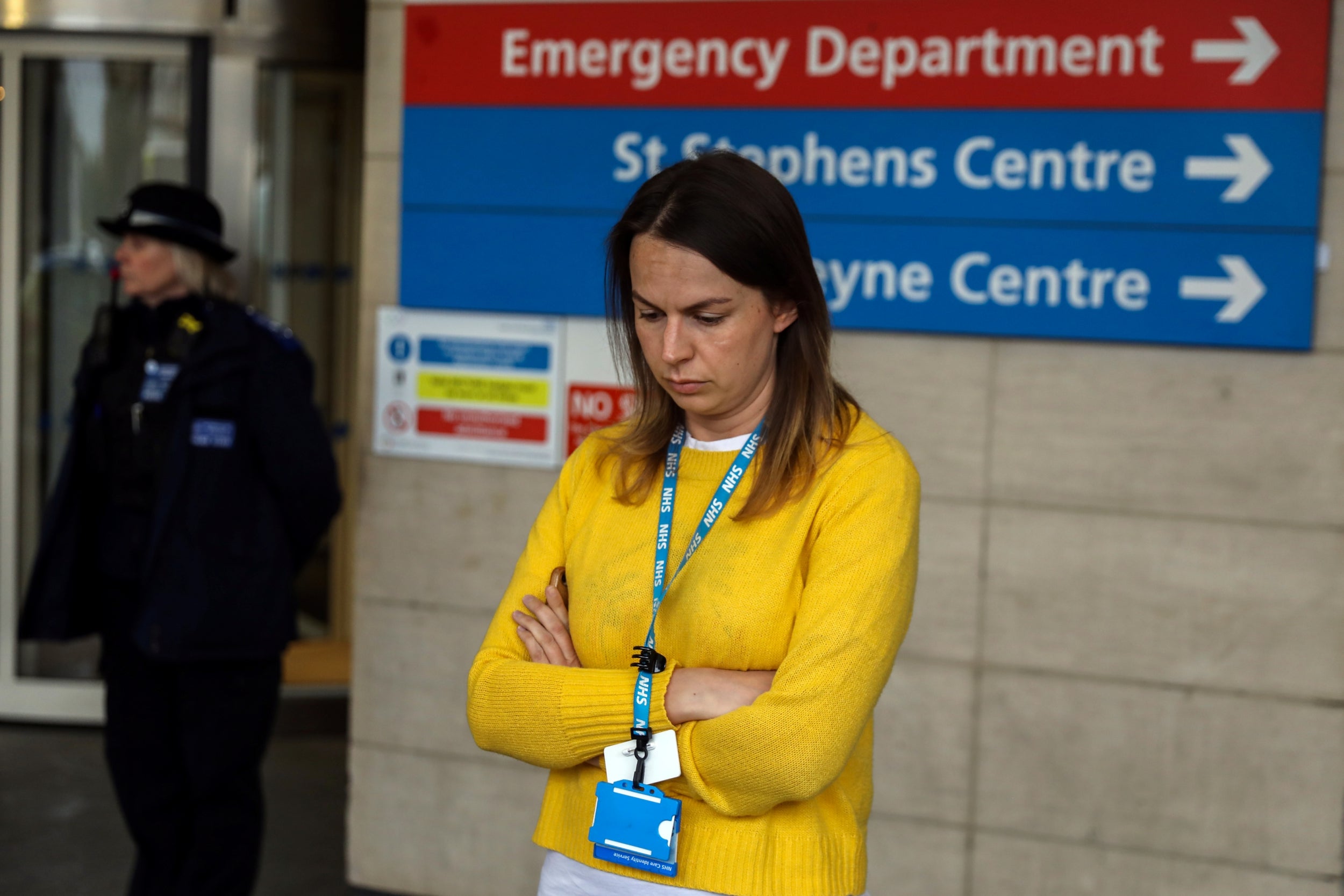
16/30 London
An NHS worker observes a minute’s silence at Chelsea and Westminster Hospital
Reuters
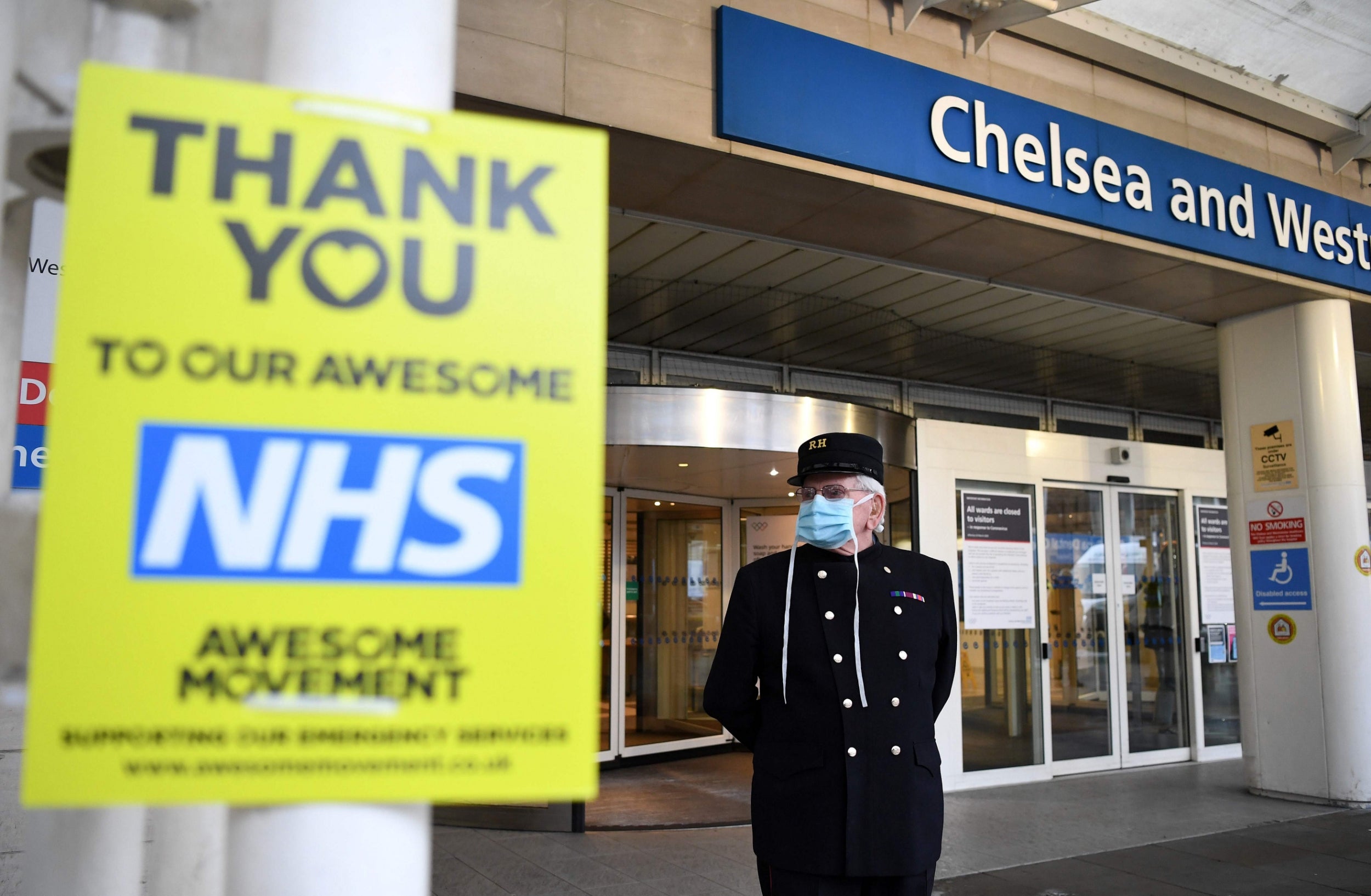
17/30 Chelsea and Westminster Hospital in London
AFP via Getty
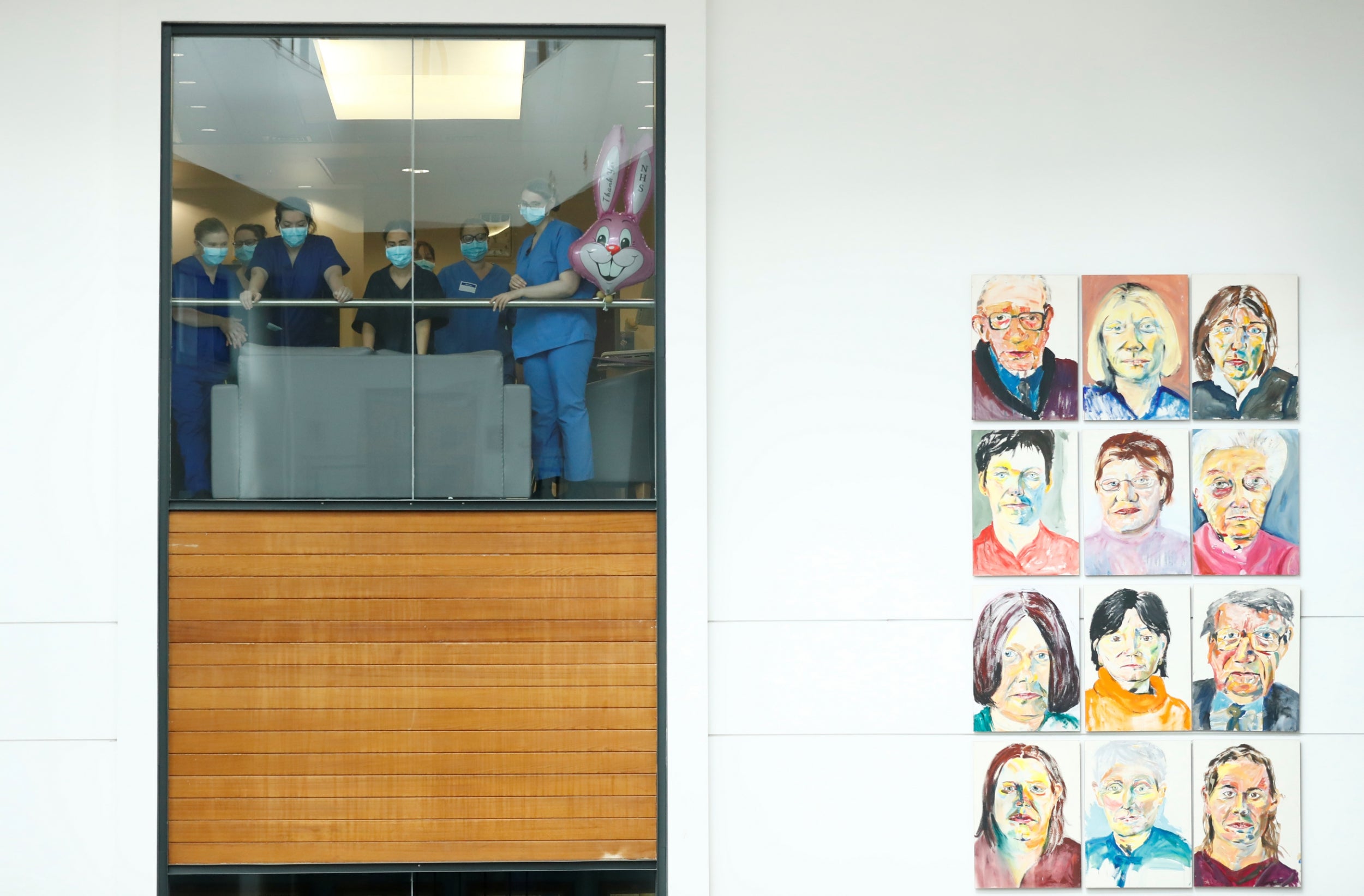
18/30 Belfast, Northern Ireland
NHS staff observe a minutes silence at Mater Infirmorum Hospital
Reuters
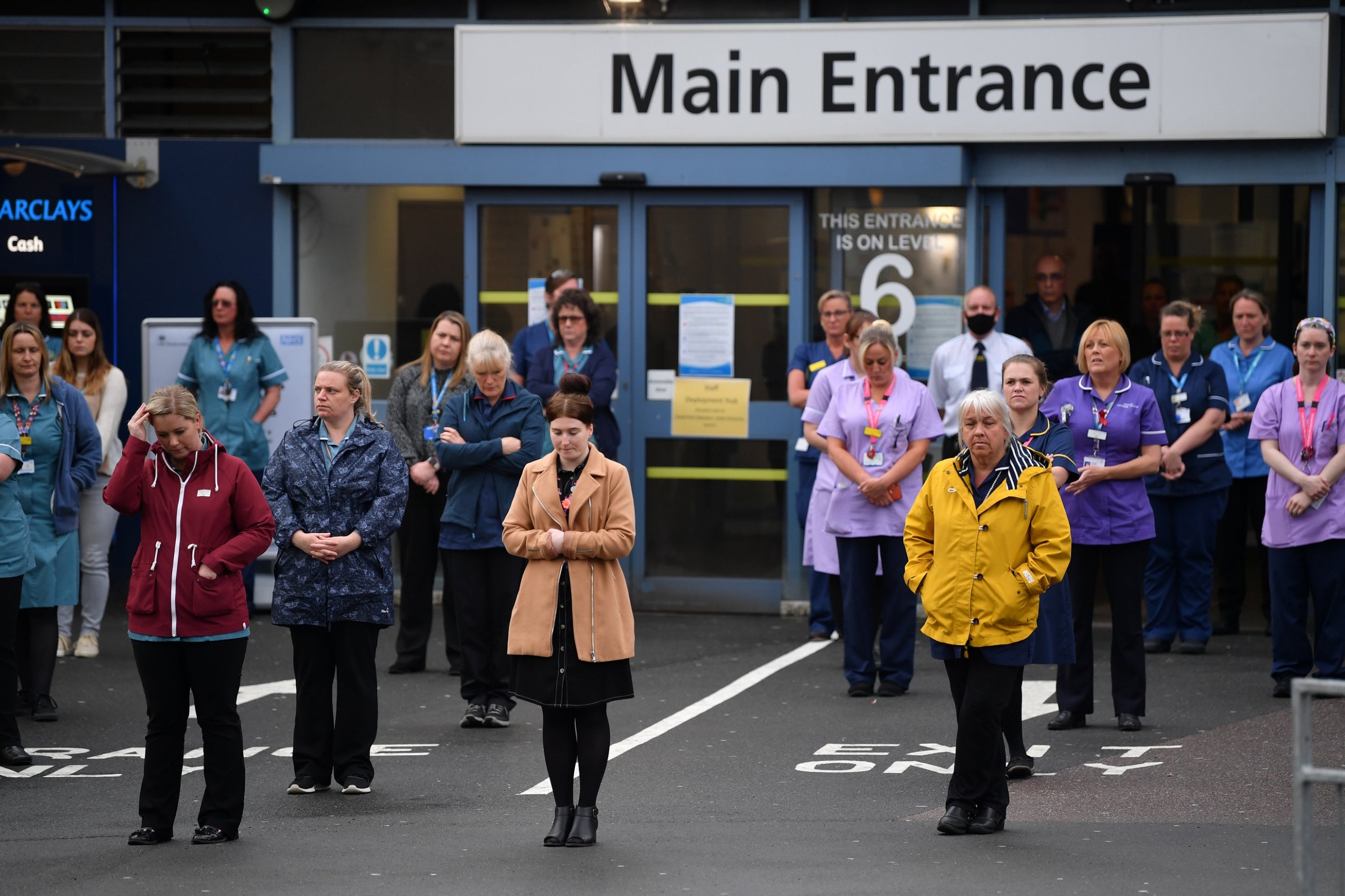
19/30 Plymouth
NHS workers hold a minute’s silence outside the main entrance of Derriford Hospital
Getty
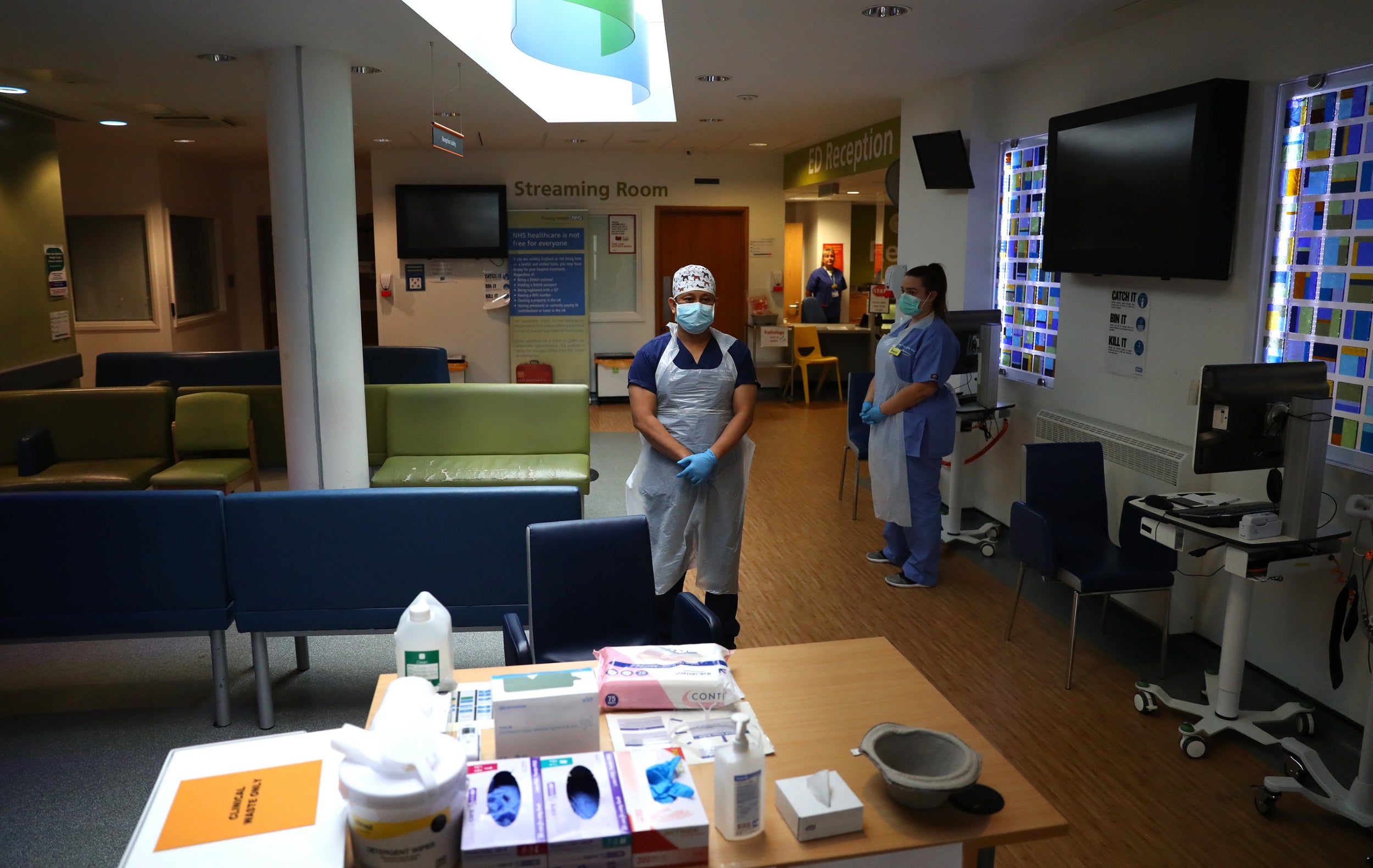
20/30
NHS Frimley Park Hospital staff at the A&E department observe a minute’s silence
Getty
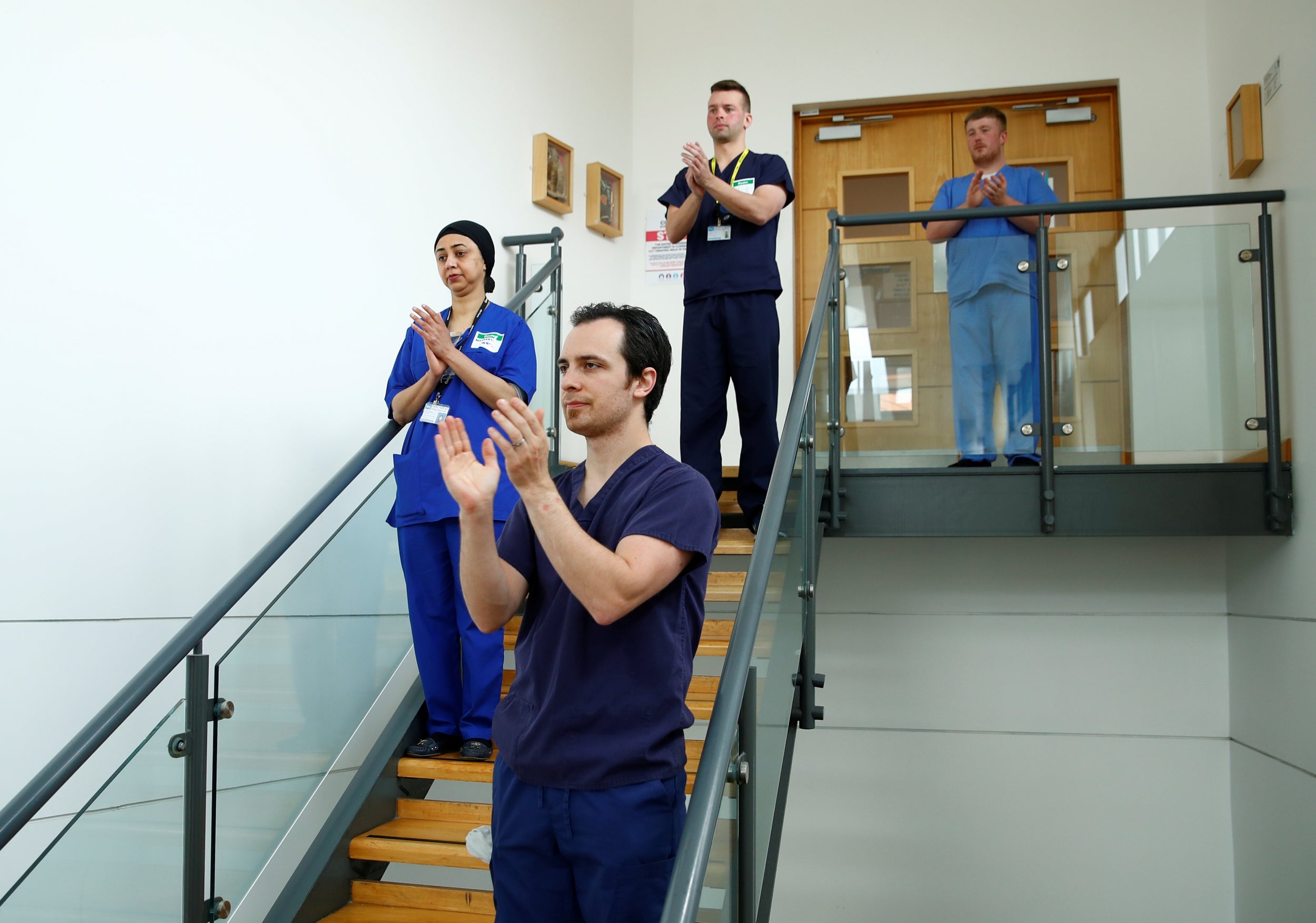
21/30 Mater Infirmorum Hospital
People applaud after a minutes silence in honour of key workers
Reuters
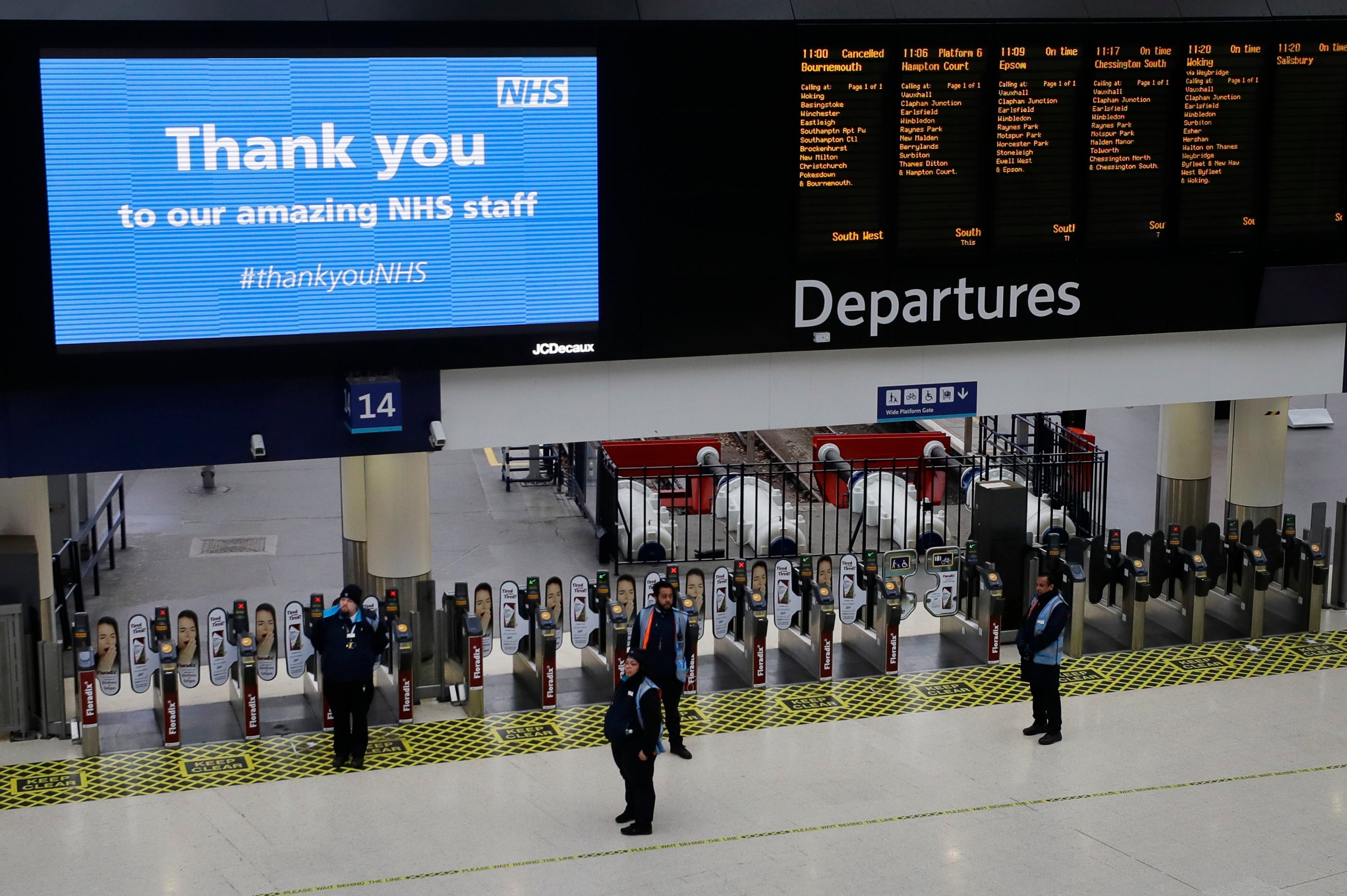
22/30 Waterloo Station, London
AP
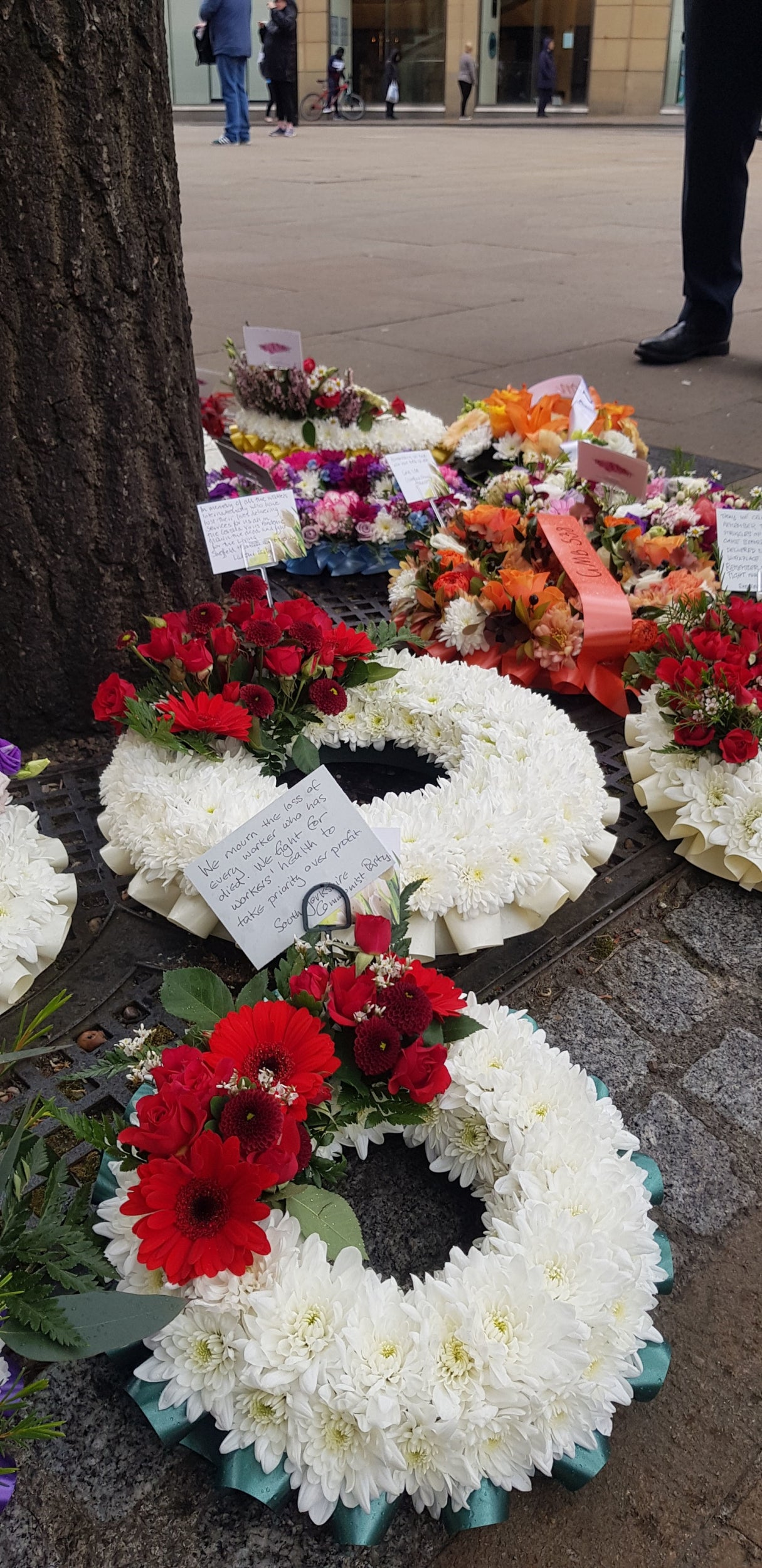
23/30
Wreaths laid outside Sheffield town hall
PA
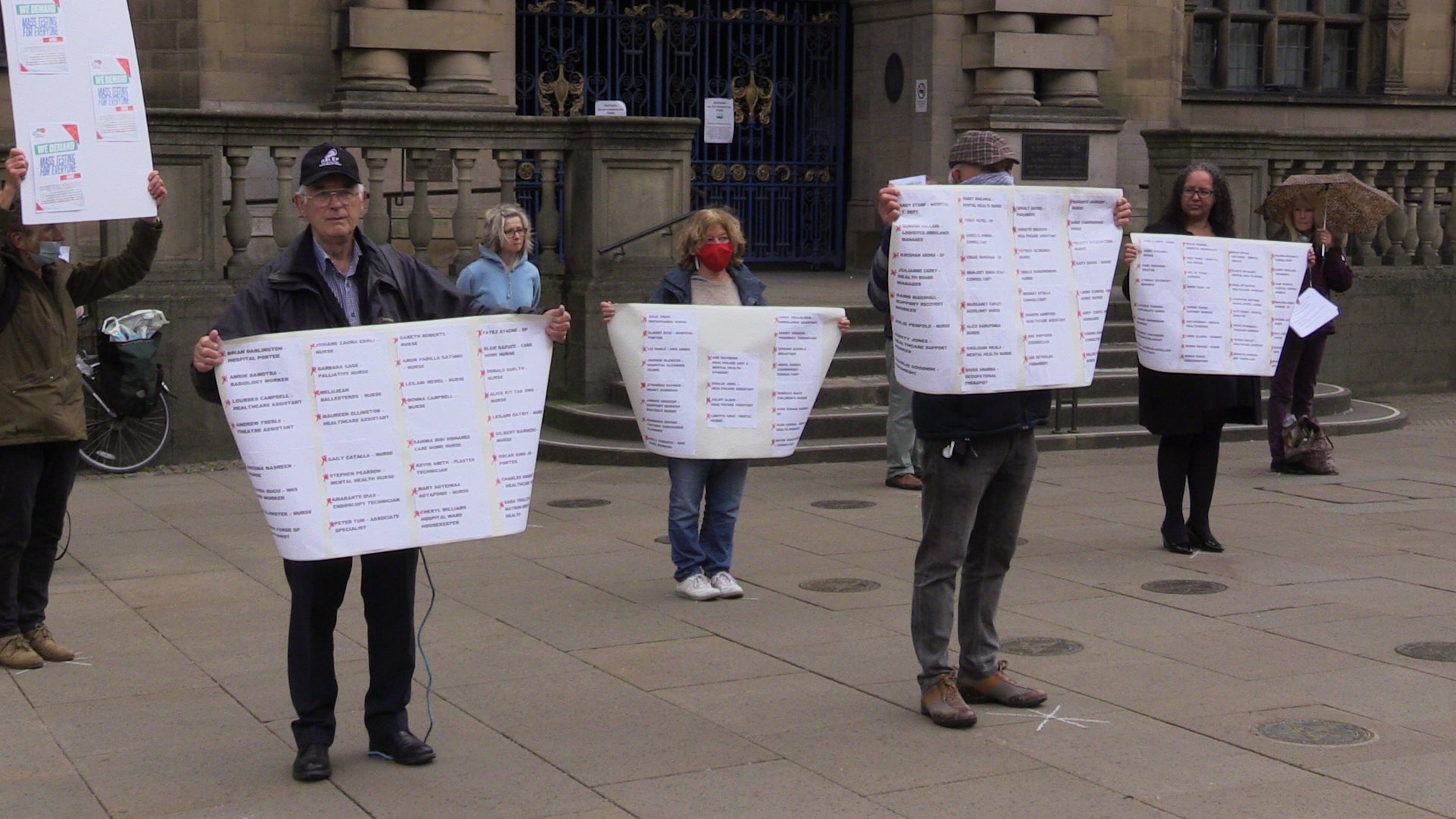
24/30
A group of trade unionists and supporters standing outside Sheffield town hall
PA
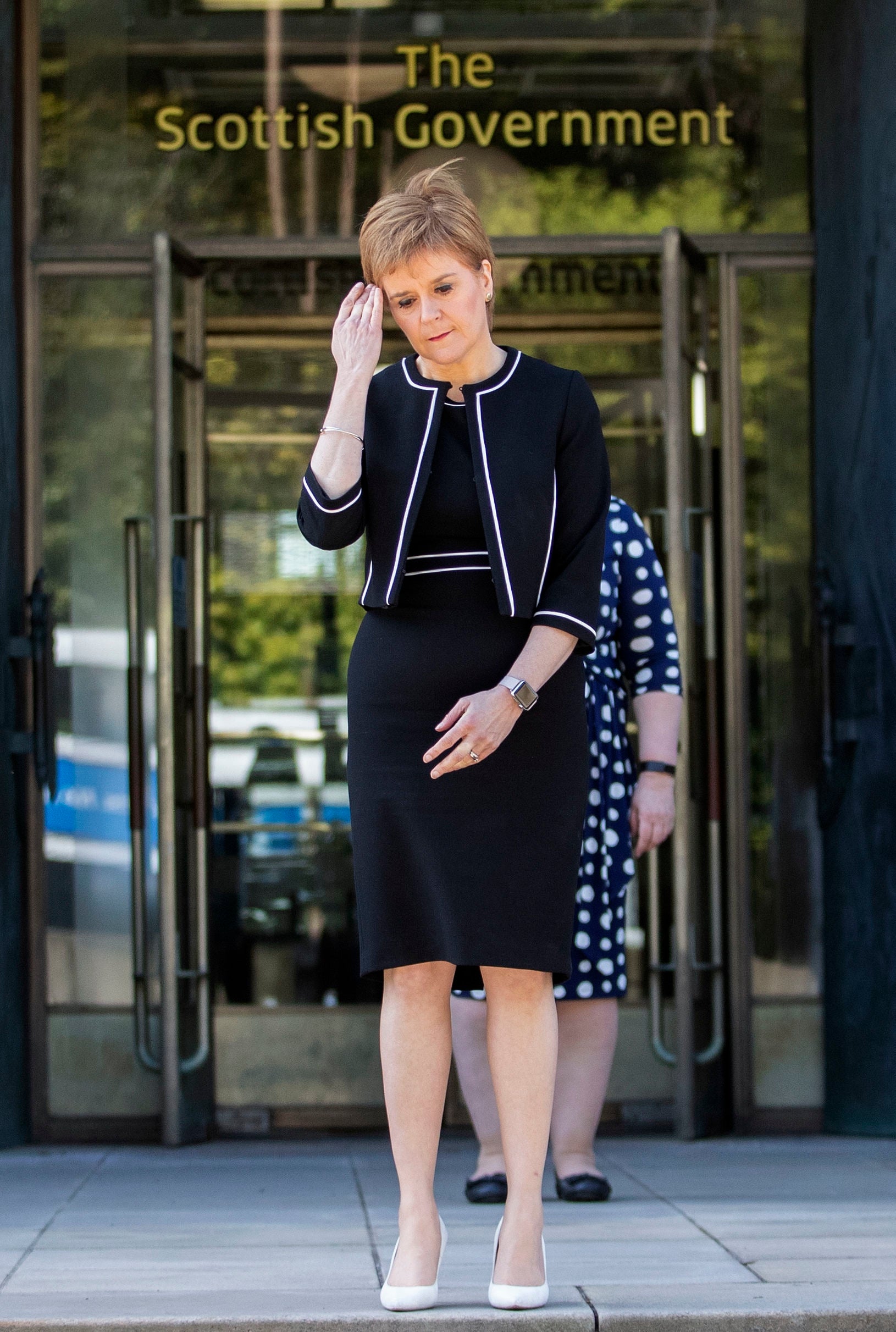
25/30
First Minister Nicola Sturgeon stands outside St Andrew’s House in Edinburgh to observe a minute’s silence in tribute to the NHS staff and key workers who have died during the coronavirus outbreak
PA
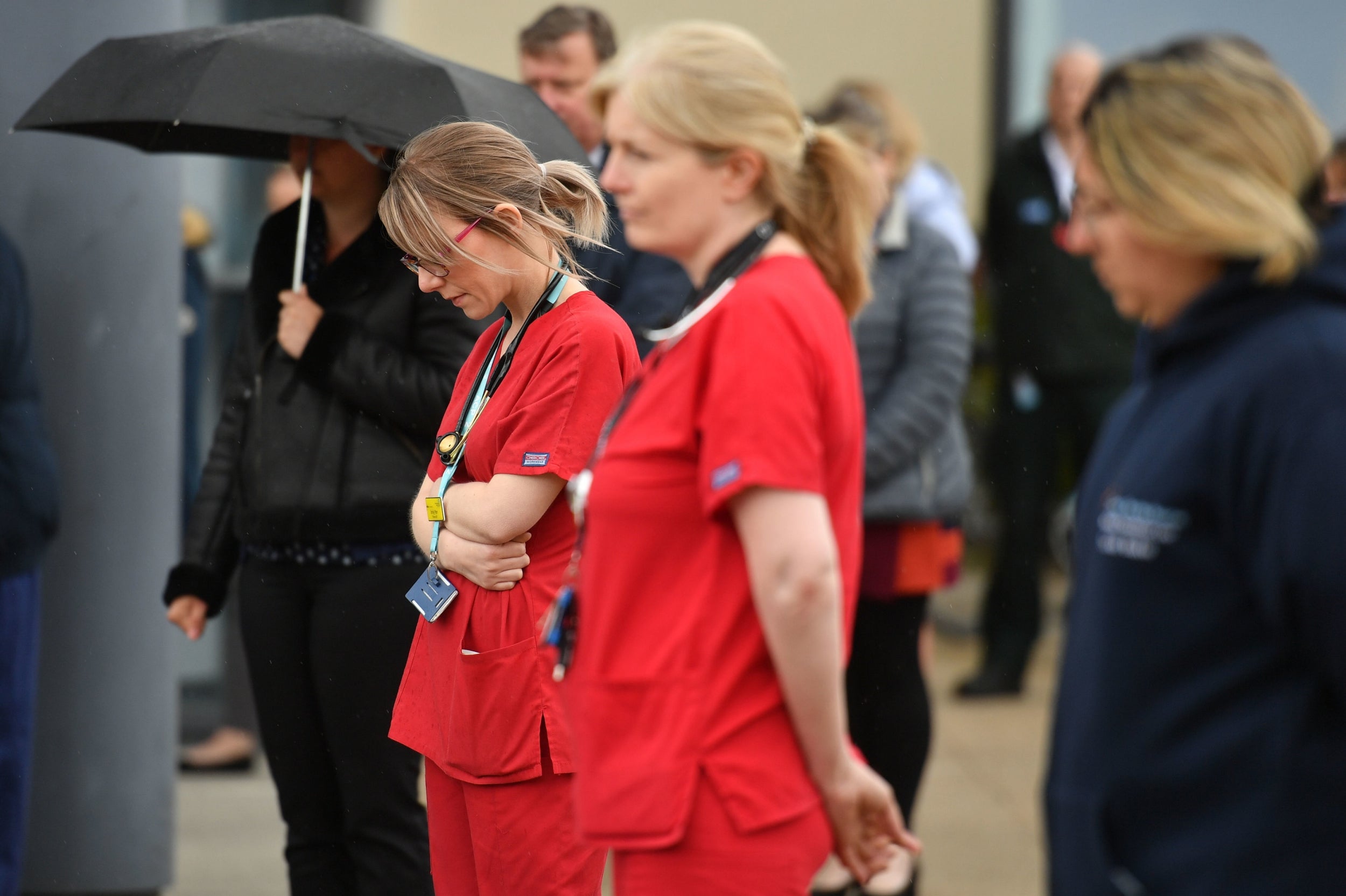
26/30
Staff stand outside the Royal Derby Hospital, during a minutes silence
PA
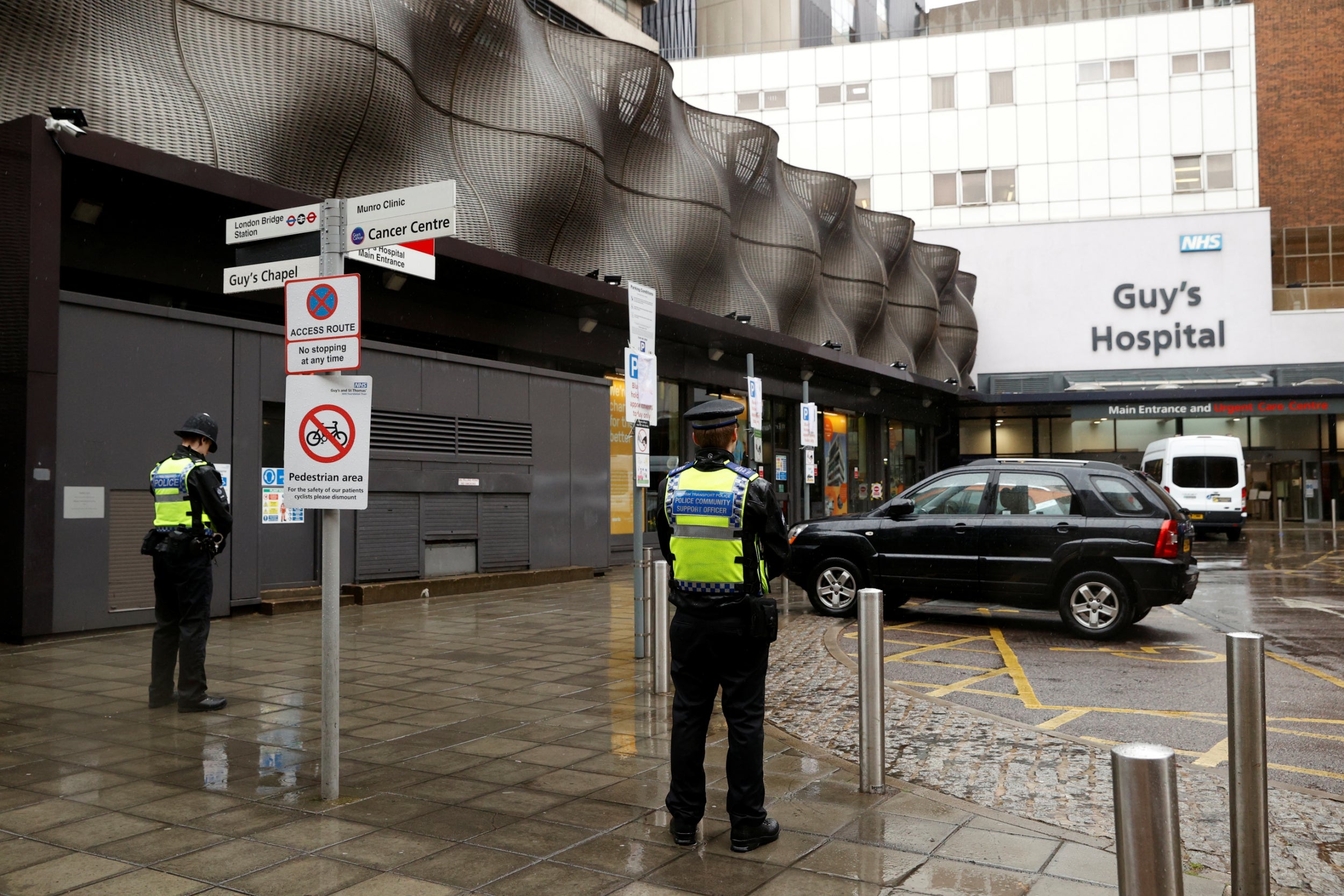
27/30 London
Police officers observe a minutes silence at Guy’s Hospital
Reuters
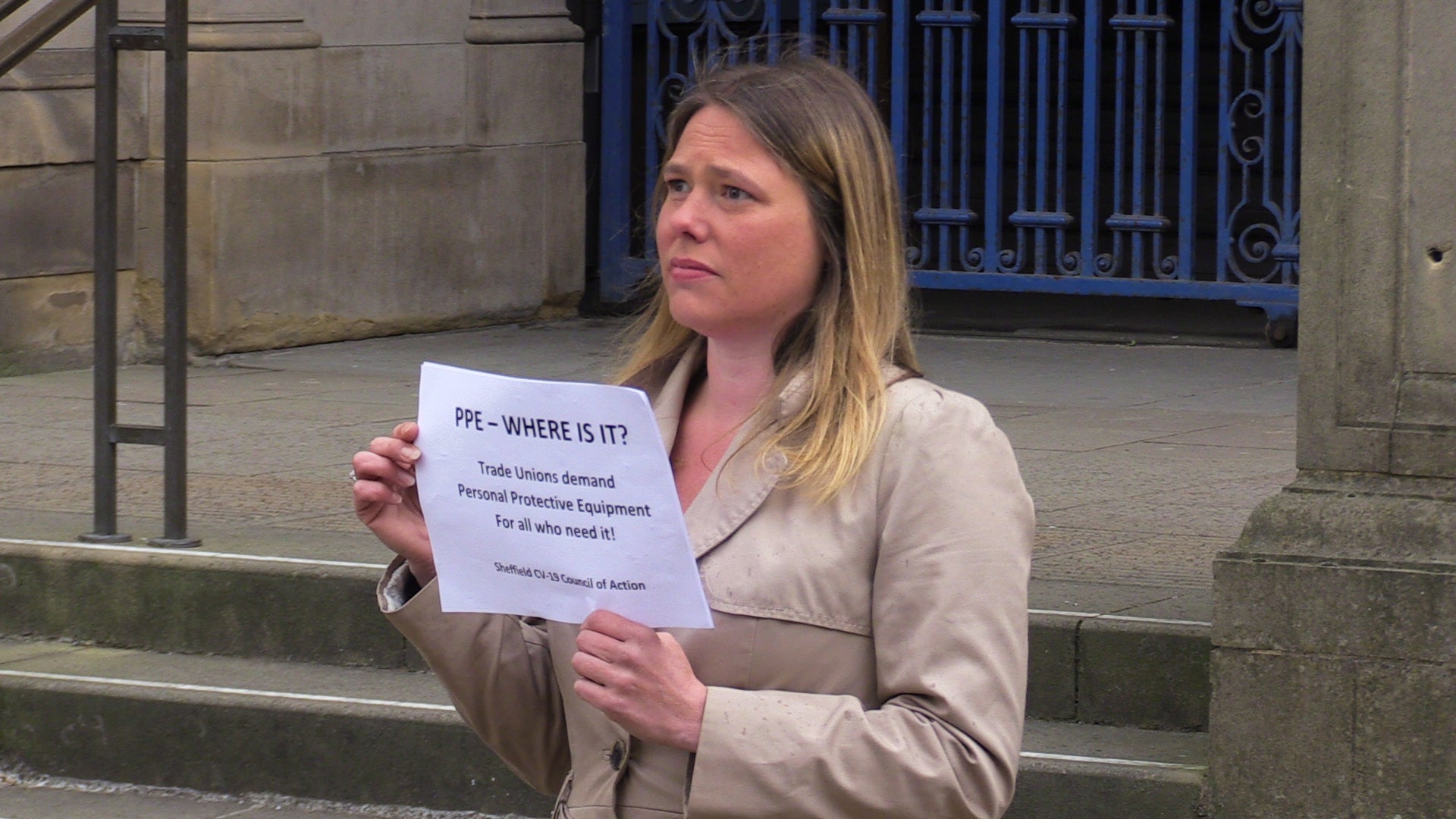
28/30
A woman standing outside Sheffield town hall
PA
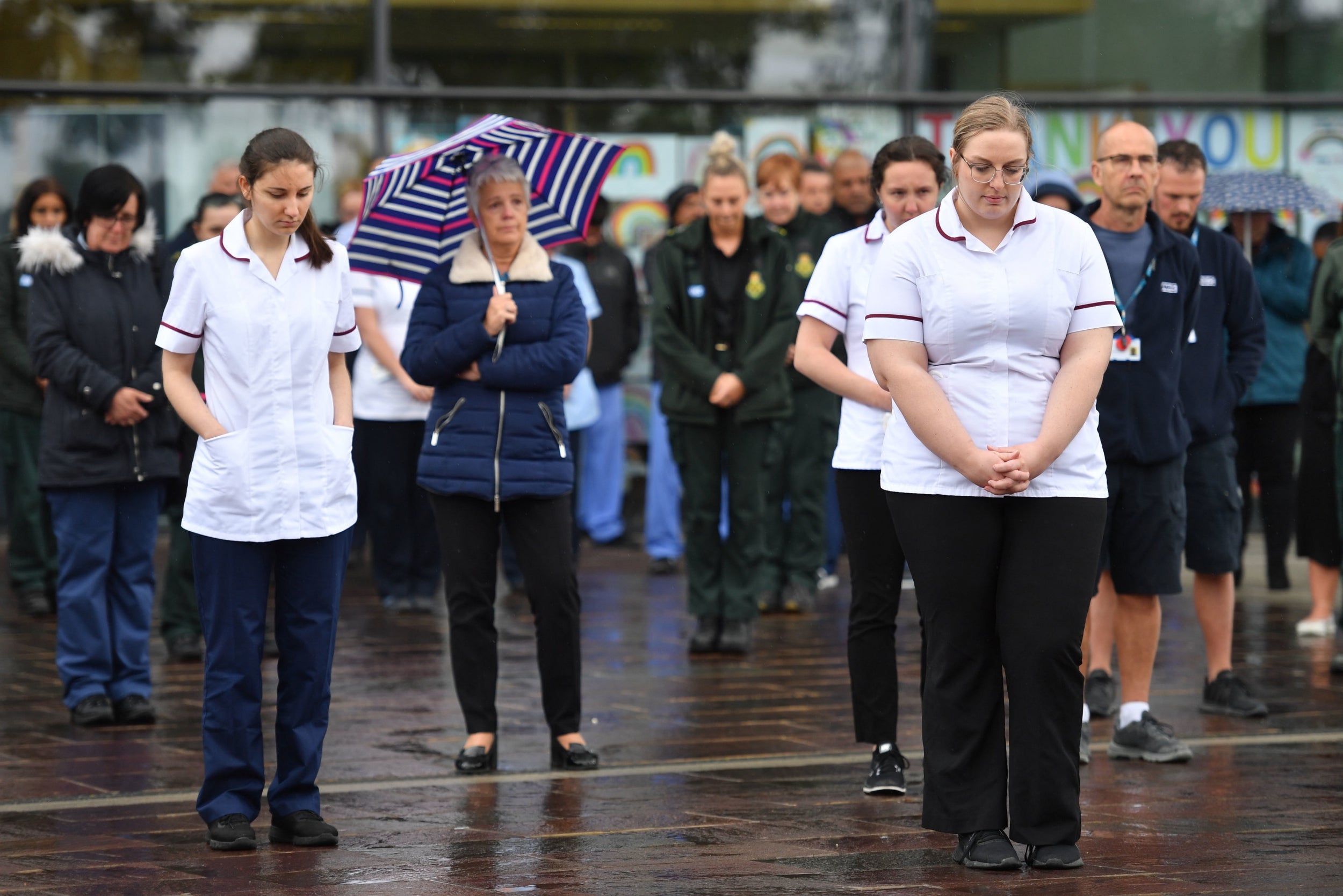
29/30 Royal Derby Hospital
PA
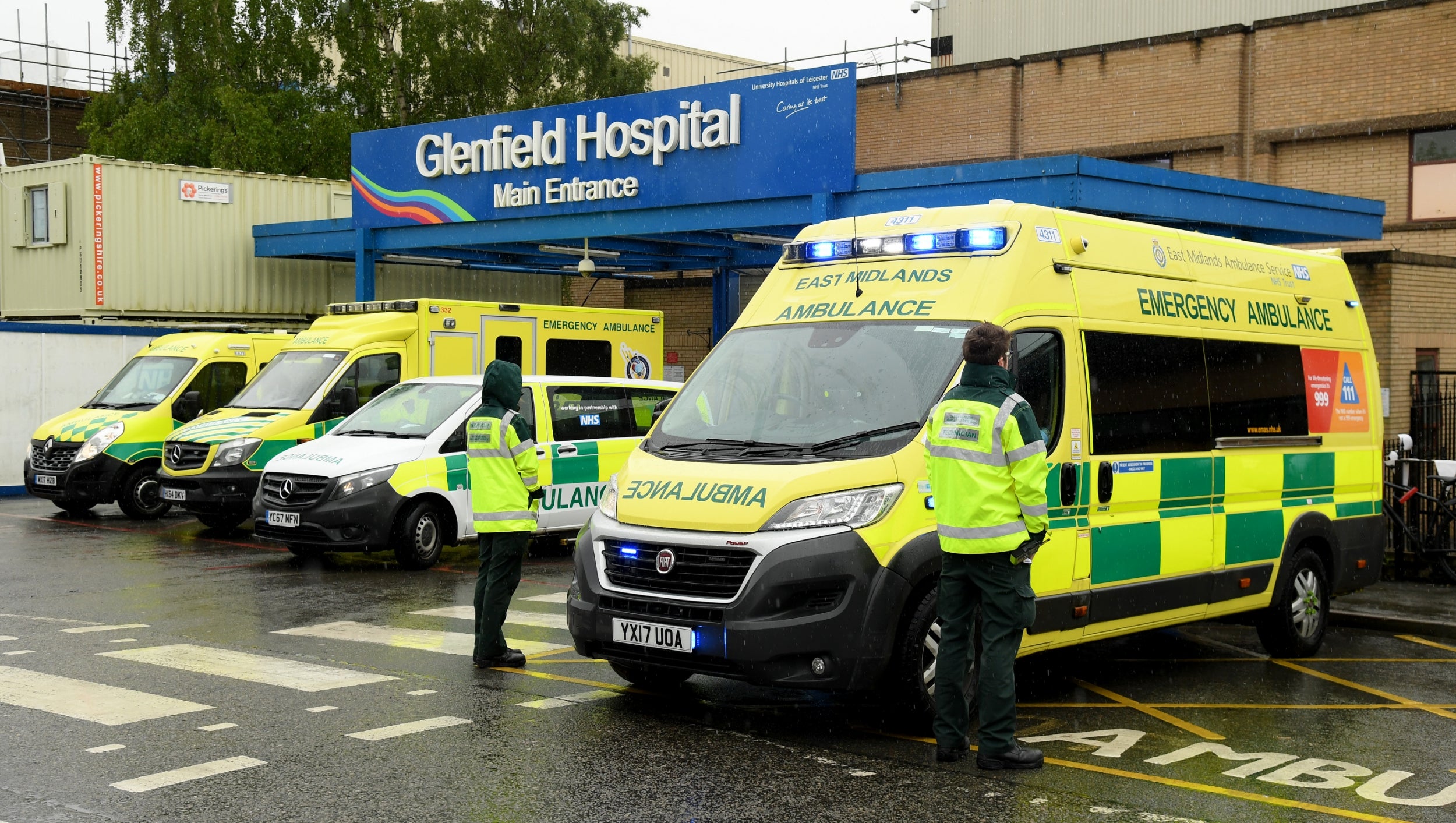
30/30 Leicester,
NHS workers during a minute’s silence outside Glenfield Hospital
Getty

1/30
Staff react outside Salford Royal Hospital in Manchester during a minute’s silence to pay tribute to the NHS staff and key workers who have died during the coronavirus outbreak
PA

2/30
Staff inside Camberwell bus depot in London, during a minute’s silence
PA

3/30
NHS staff at the Mater hospital in Belfast, during a minute’s silence to pay tribute to the NHS staff and key workers who have died during the coronavirus outbreak.
PA

4/30
Shoppers observe a minute’s silence in Tescos in Shoreham
Getty

5/30
Firefighters outside Godstone fire station
PA

6/30 Salford Royal Hospital
Getty

7/30 Salford Royal Hospital
PA

8/30
Hospital workers take part in a protest calling on the British government to provide PPE across Britain for all workers in care, the NHS and other vital public services after a nationwide minute’s silence at University College Hospital in London
AP

9/30
A school children’s poster hanging outside Glenfield Hospital during a minute’s silence
Getty

10/30
A man holds a placard that reads “People’s health before profit” outside St Thomas hospital
Getty

11/30
Staff members applaud outside the Royal Derby Hospital, following a minute’s silence
PA

12/30
Cabinet Secretary Mark Sedwill, Prime minister Boris Johnson and Chancellor of the Exchequer Rishi Sunak, stand inside 10 Downing Street, London, to observe a minutes silence in tribute to the NHS staff and key workers who have died during the coronavirus outbreak
PA

13/30 University College Hospital, London
Hospital workers hold placards with the names of their colleagues who have died from coronavirus as they take part in a protest calling on the British government to provide PPE
AP

14/30
Staff at Waterloo Station in London, stand to observe a minute’s silence, to pay tribute to NHS and key workers who have died with coronavirus
AP

15/30
Medical staff at the Louisa Jordan hospital stand during a UK wide minutes silence to commemorate the key workers who have died with coronavirus in Glasgow
Getty

16/30 London
An NHS worker observes a minute’s silence at Chelsea and Westminster Hospital
Reuters

17/30 Chelsea and Westminster Hospital in London
AFP via Getty

18/30 Belfast, Northern Ireland
NHS staff observe a minutes silence at Mater Infirmorum Hospital
Reuters

19/30 Plymouth
NHS workers hold a minute’s silence outside the main entrance of Derriford Hospital
Getty

20/30
NHS Frimley Park Hospital staff at the A&E department observe a minute’s silence
Getty

21/30 Mater Infirmorum Hospital
People applaud after a minutes silence in honour of key workers
Reuters

22/30 Waterloo Station, London
AP

23/30
Wreaths laid outside Sheffield town hall
PA

24/30
A group of trade unionists and supporters standing outside Sheffield town hall
PA

25/30
First Minister Nicola Sturgeon stands outside St Andrew’s House in Edinburgh to observe a minute’s silence in tribute to the NHS staff and key workers who have died during the coronavirus outbreak
PA

26/30
Staff stand outside the Royal Derby Hospital, during a minutes silence
PA

27/30 London
Police officers observe a minutes silence at Guy’s Hospital
Reuters

28/30
A woman standing outside Sheffield town hall
PA

29/30 Royal Derby Hospital
PA

30/30 Leicester,
NHS workers during a minute’s silence outside Glenfield Hospital
Getty
“In our report we have called on the Government to grasp the golden opportunity that has presented itself. For the first time in over a decade, rough sleepers have been comprehensively taken off the streets and given accommodation. This must become the new norm.
He added: “As it stands there are two main risks that need to be addressed if the current low levels of rough sleeping are to continue. Firstly, the Government needs to fund a comprehensive housing-led exit strategy for those currently being housed in short term accommodation during the Covid-19 crisis, which we estimate will cost around £100m a year.
“Secondly, the Government needs to amend legislation to ensure those in the private rented sector who have been caught up in the economic fallout of the pandemic are not evicted when the freeze on eviction proceedings ends.
“There can be no question that we have to ensure no one is forced to live on the streets, we now expect the Government to put this achievable goal into long-term reality.”


